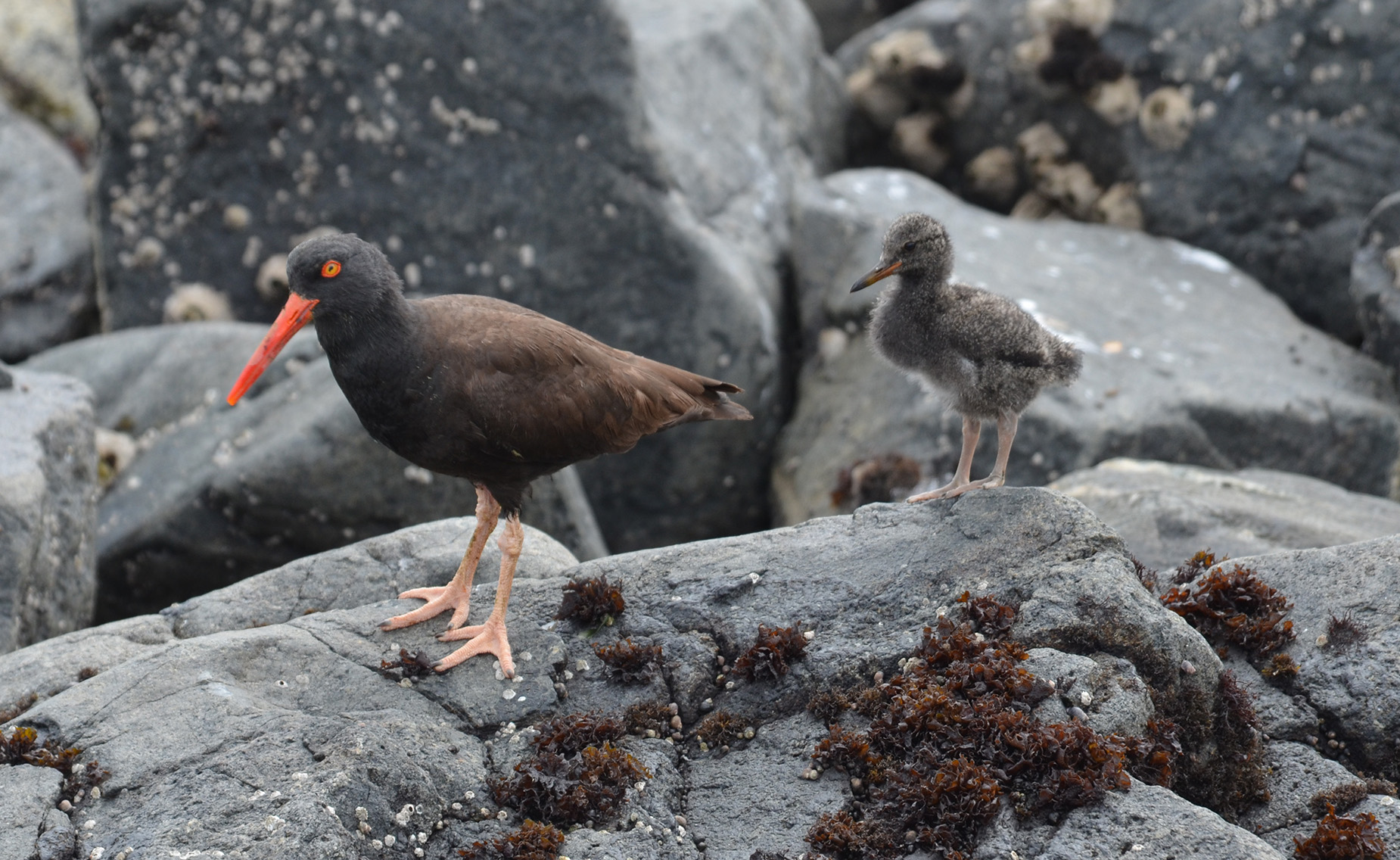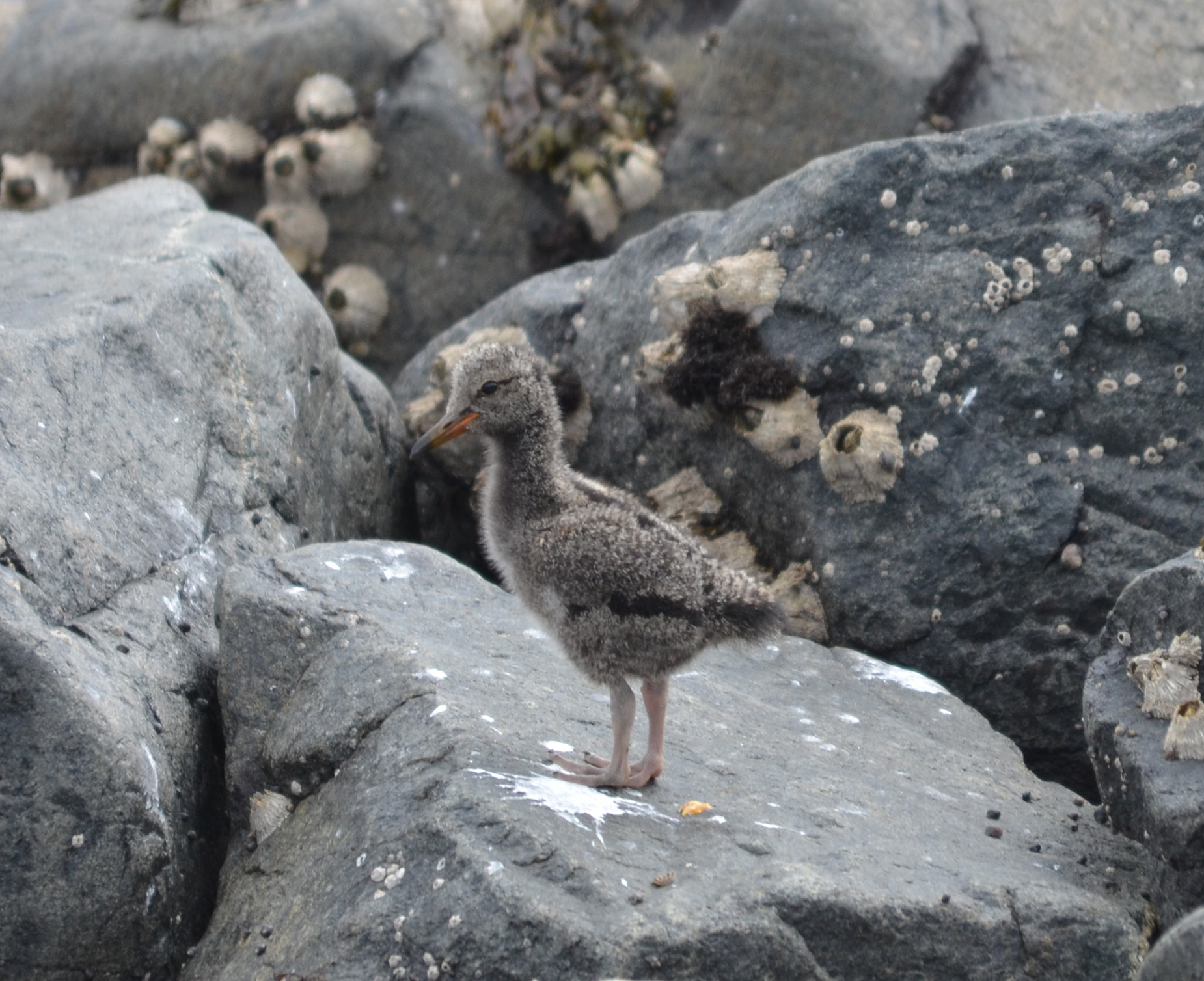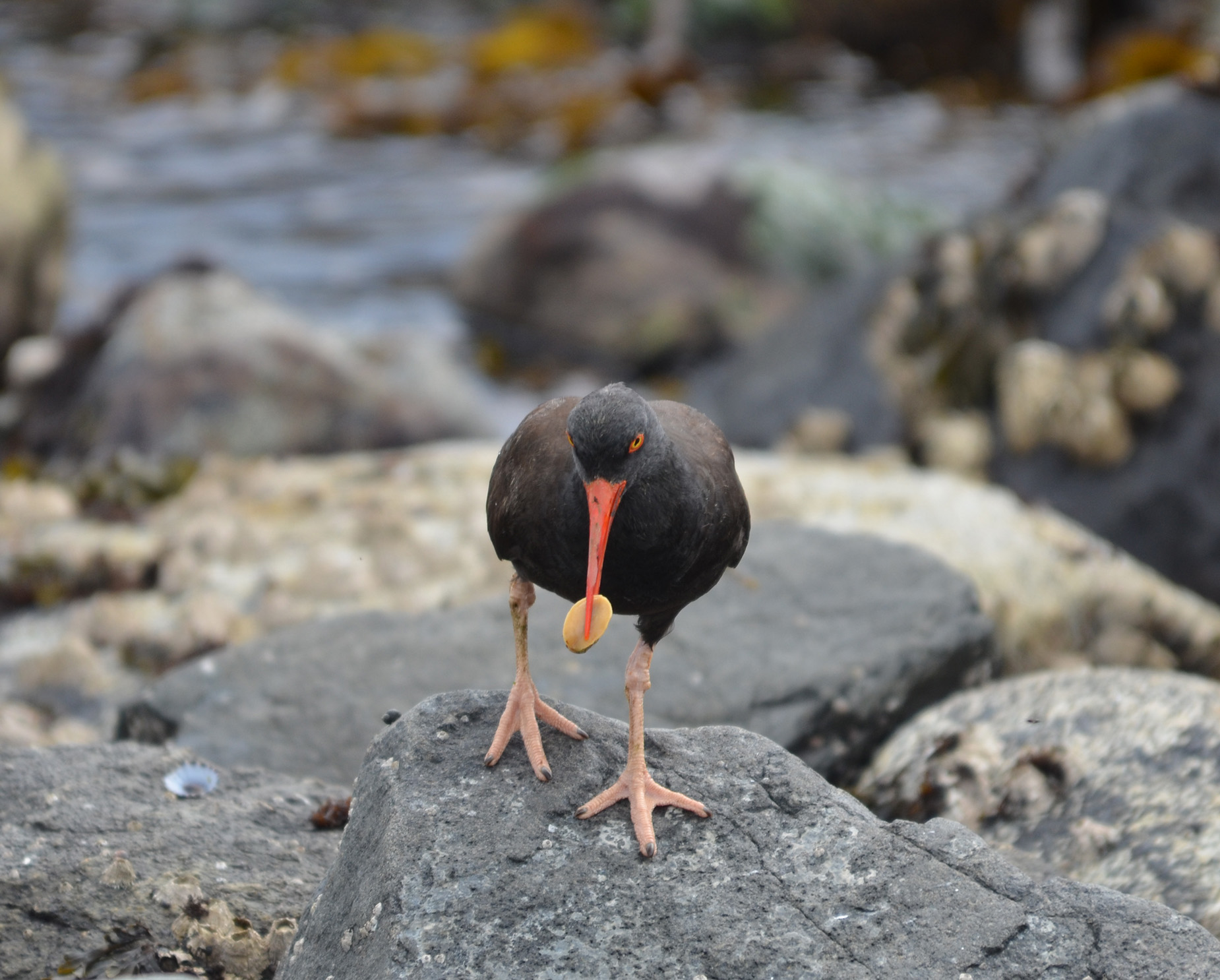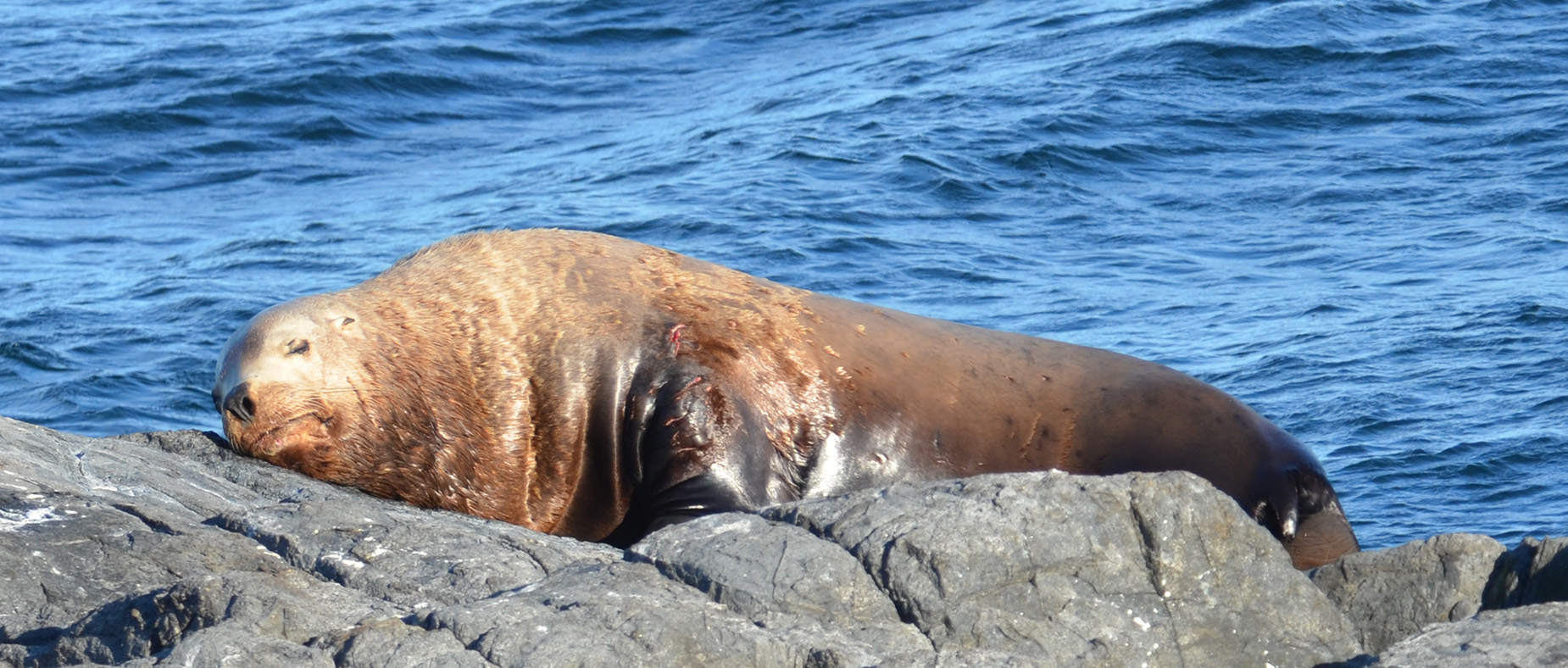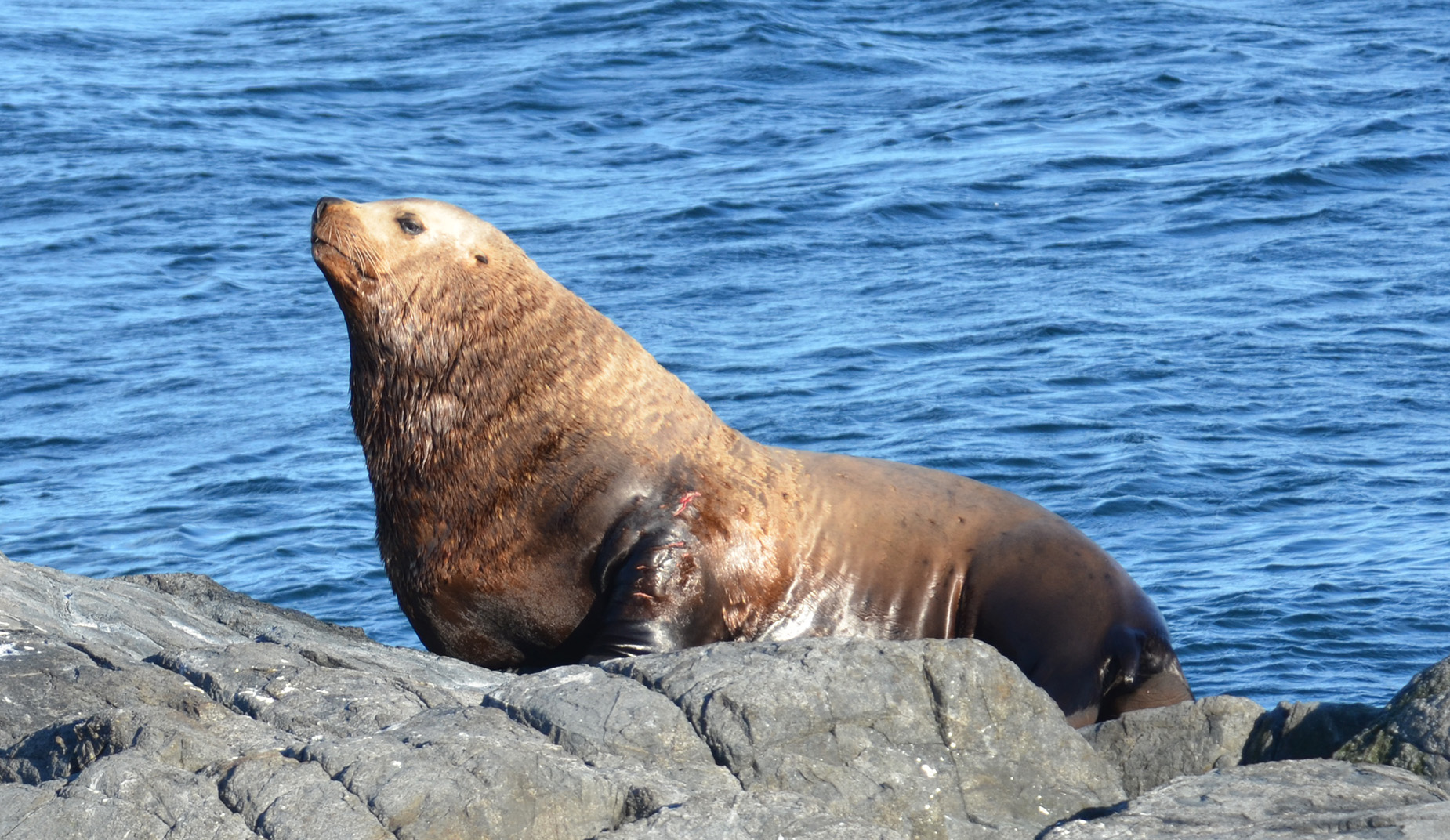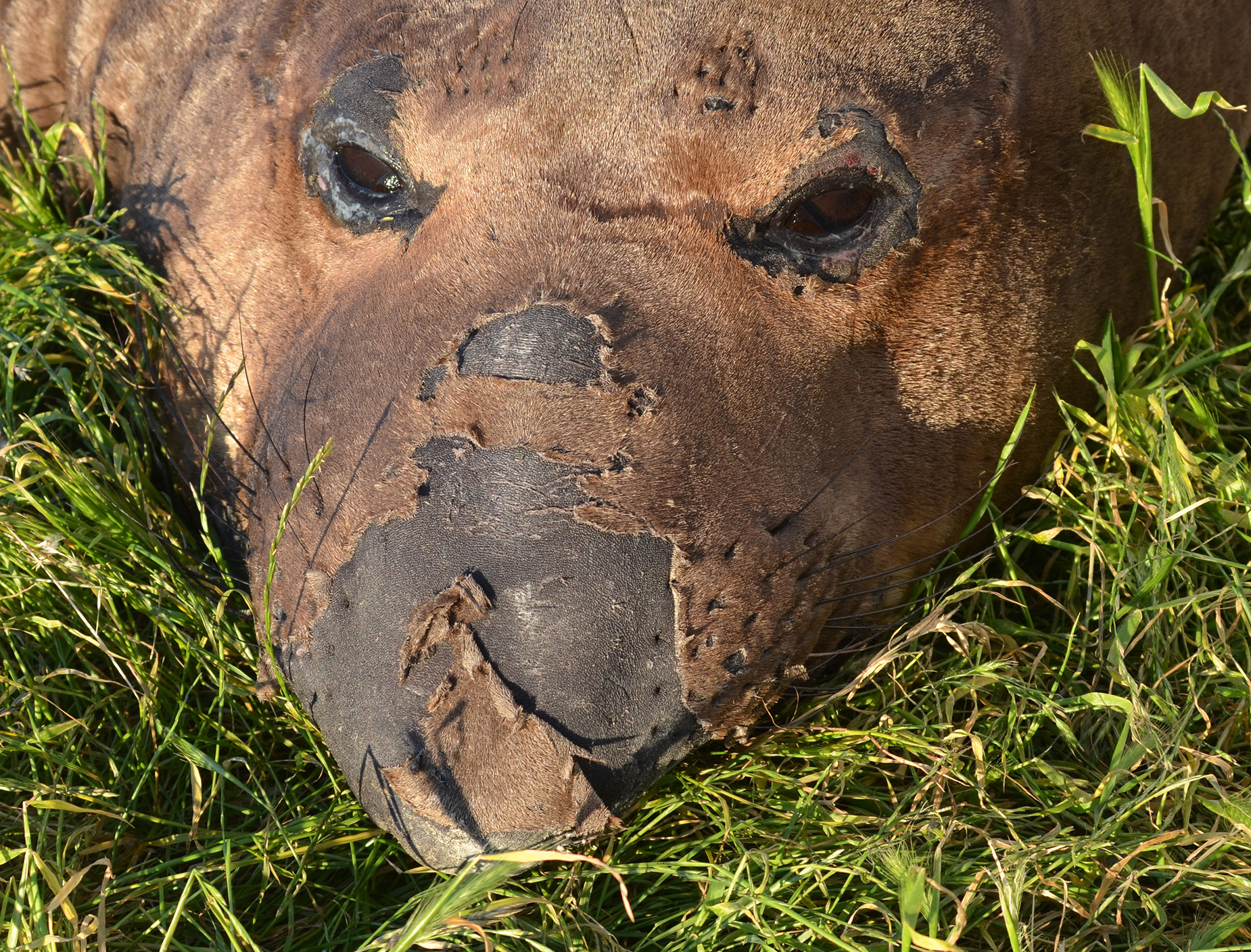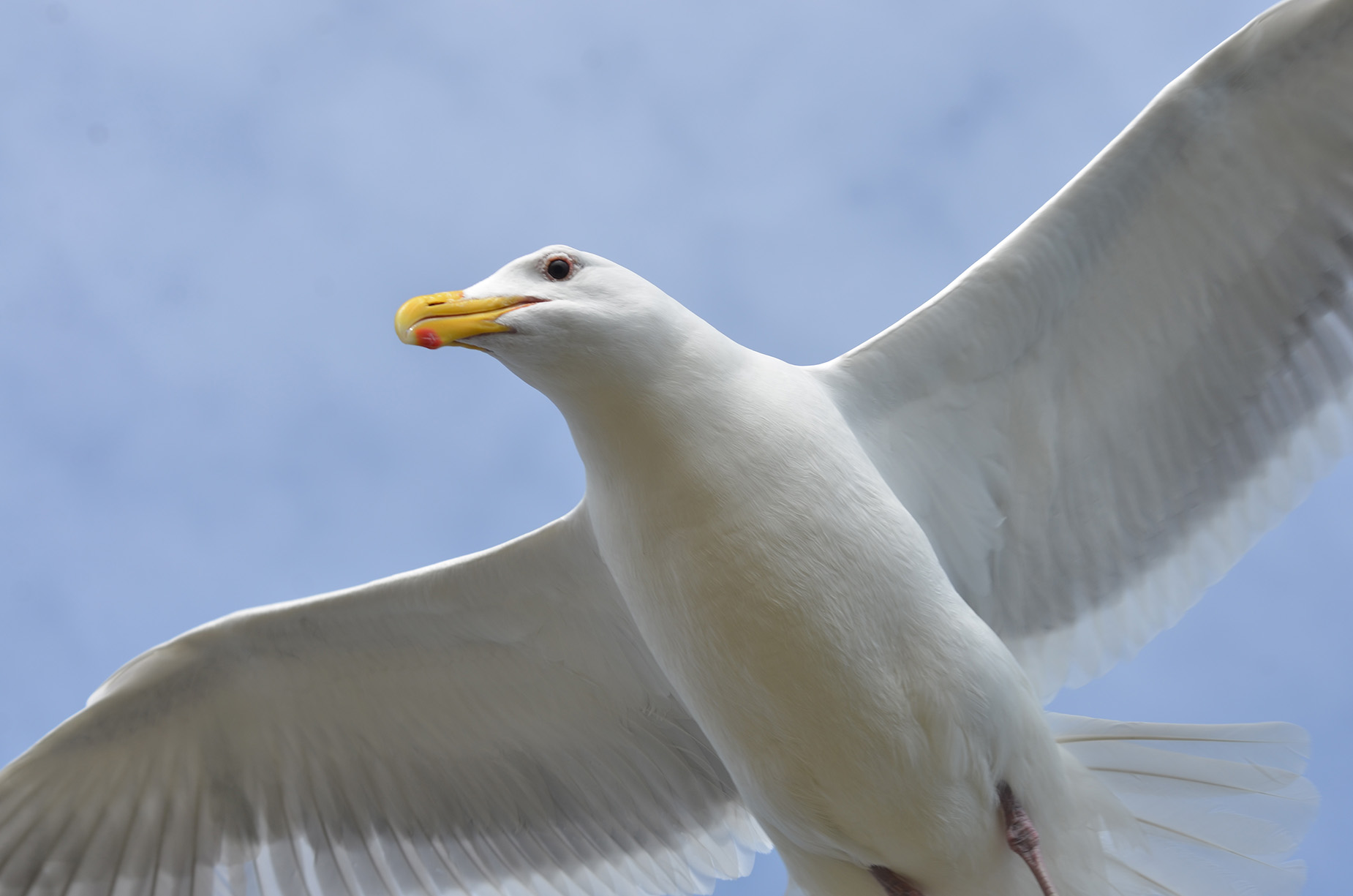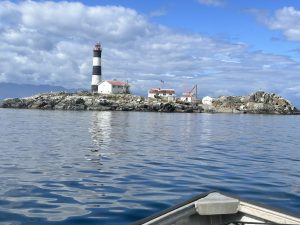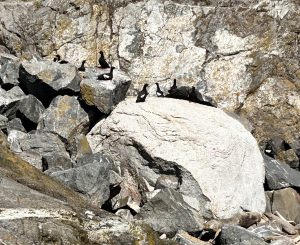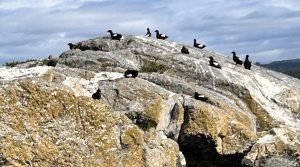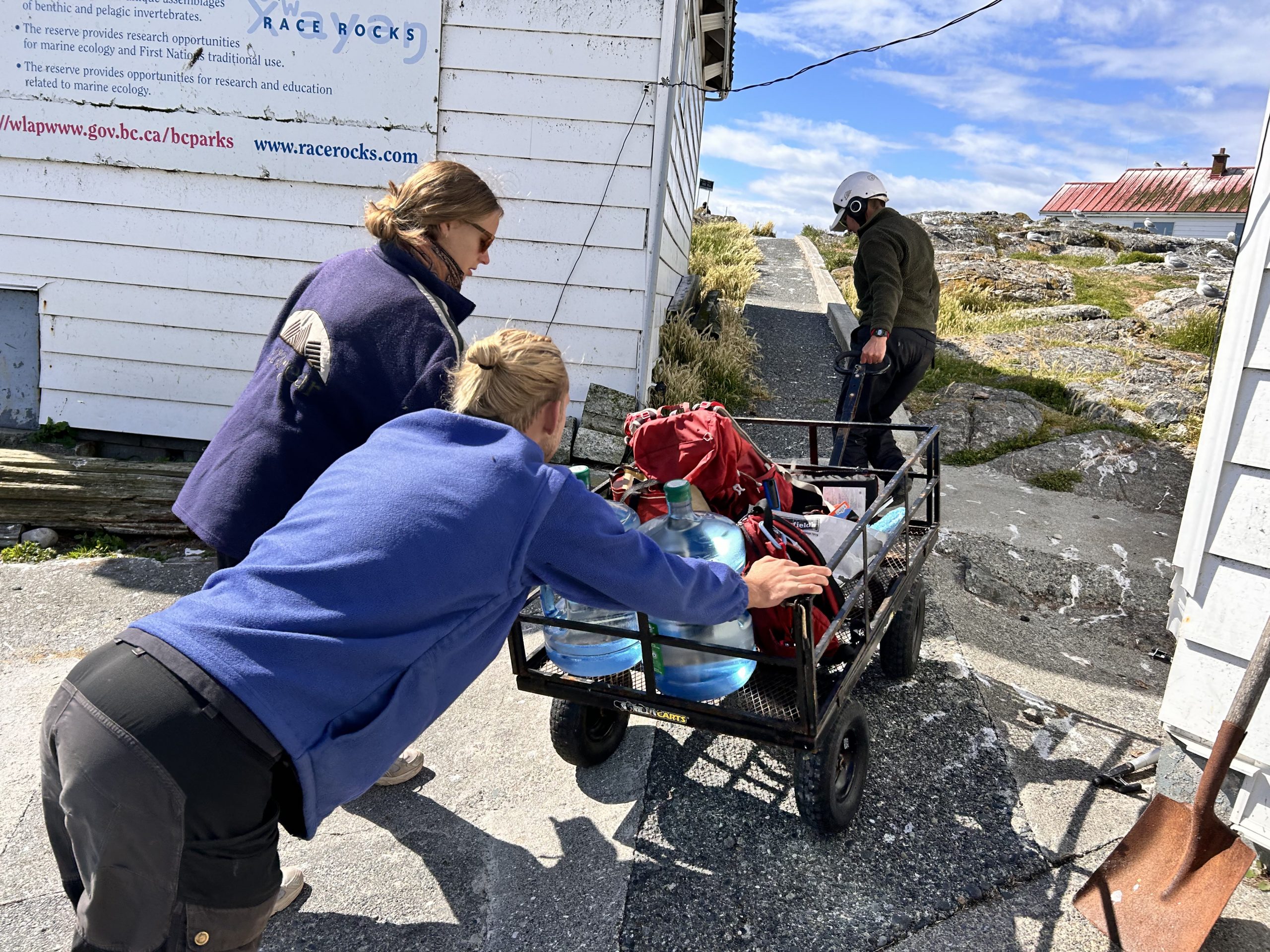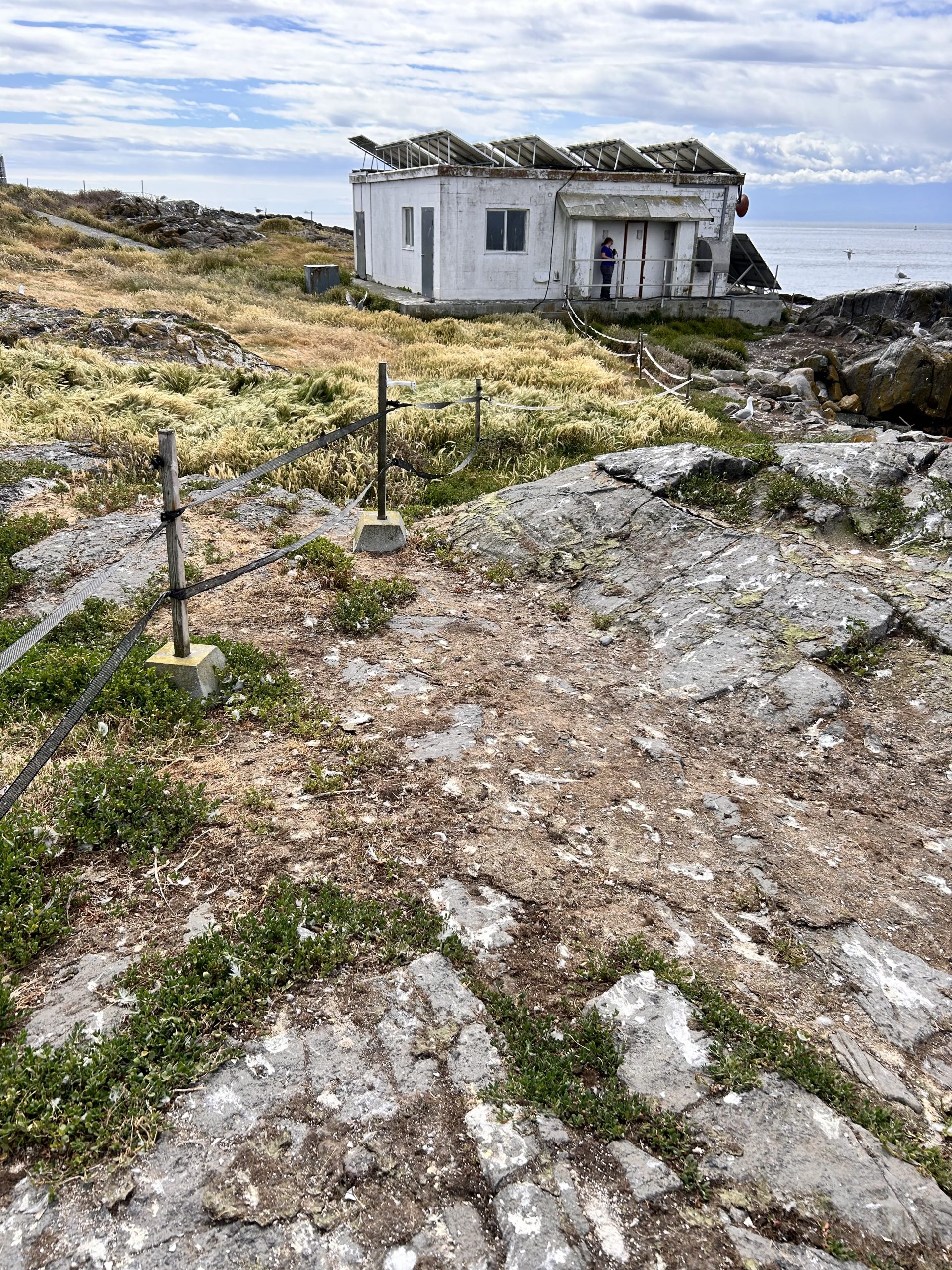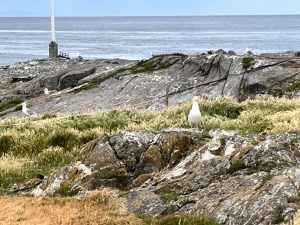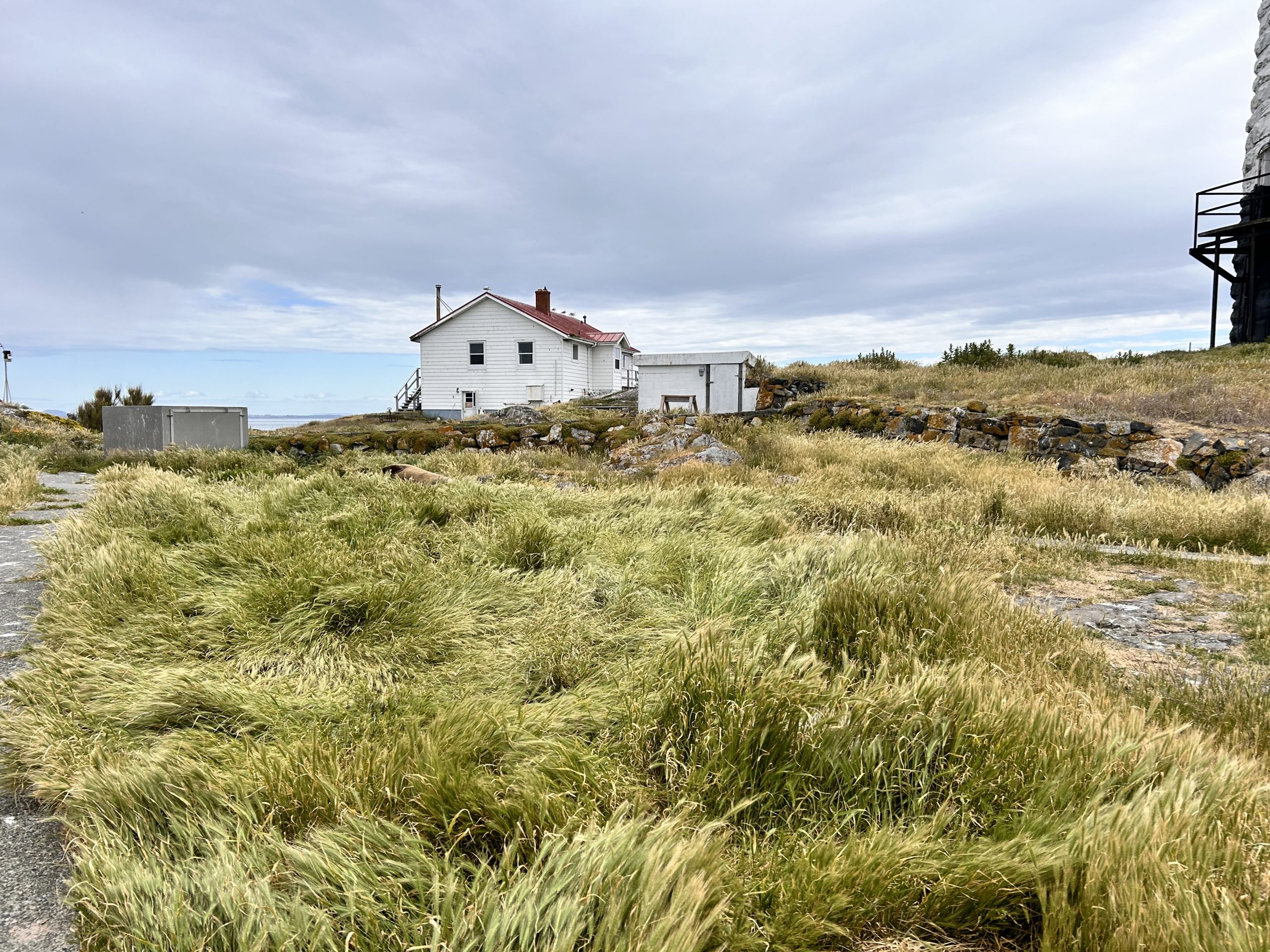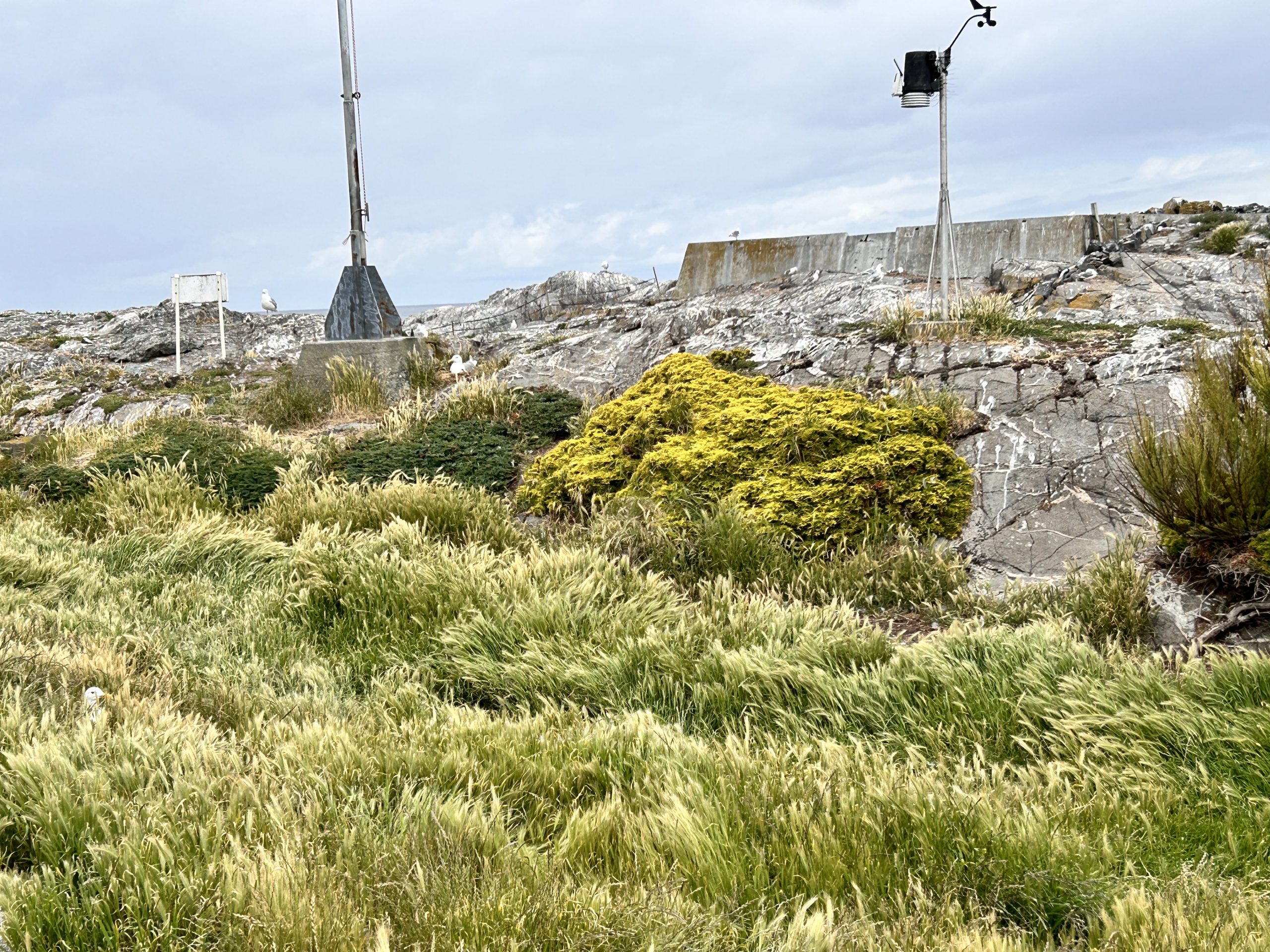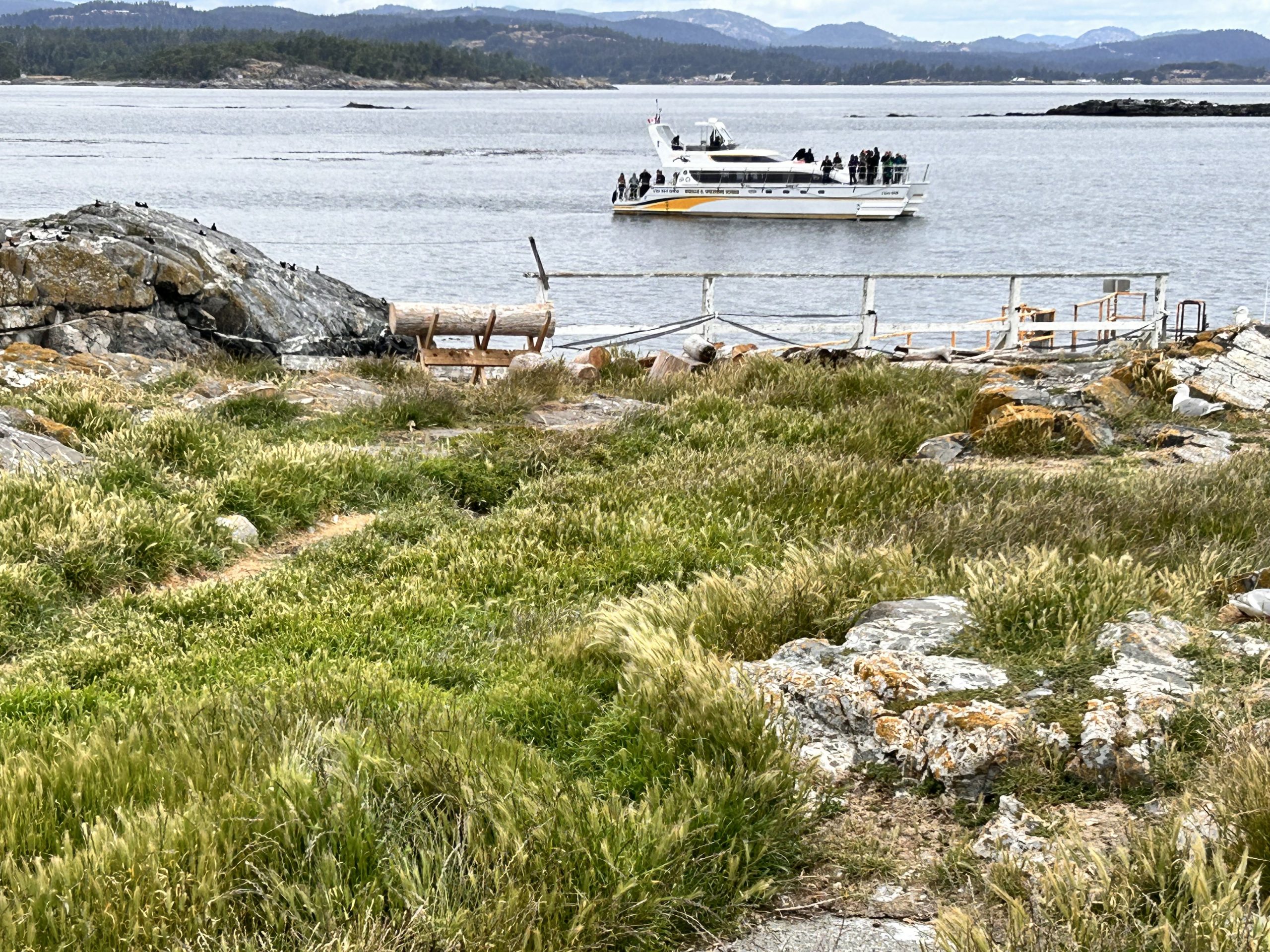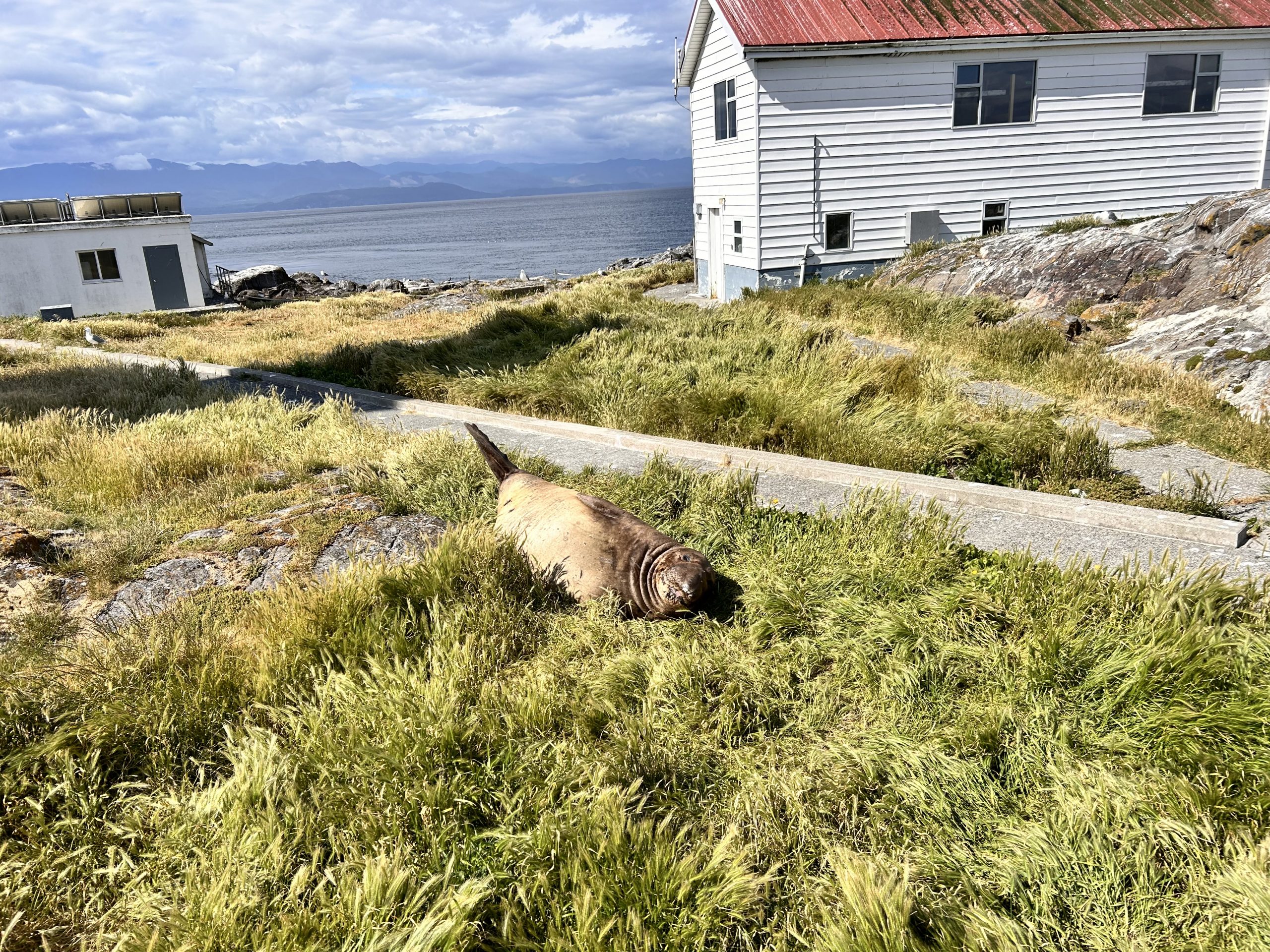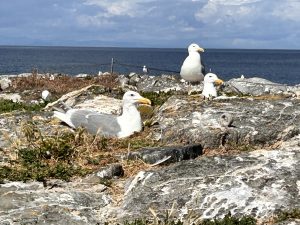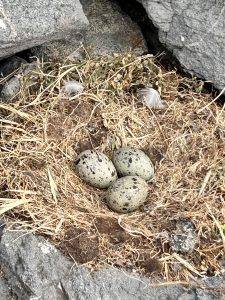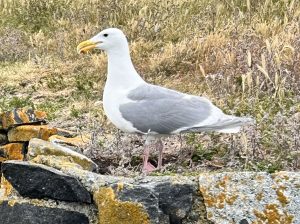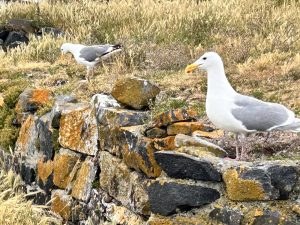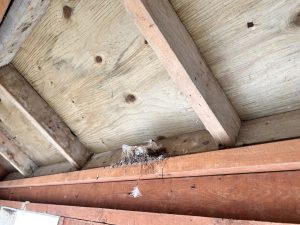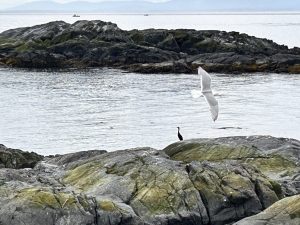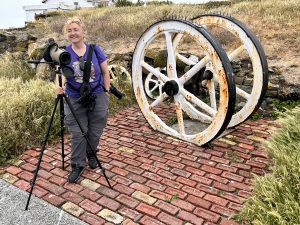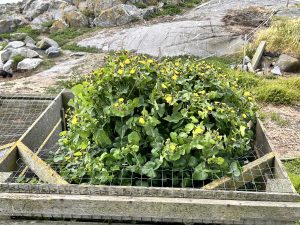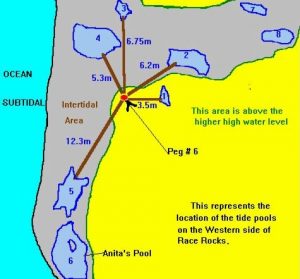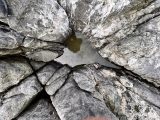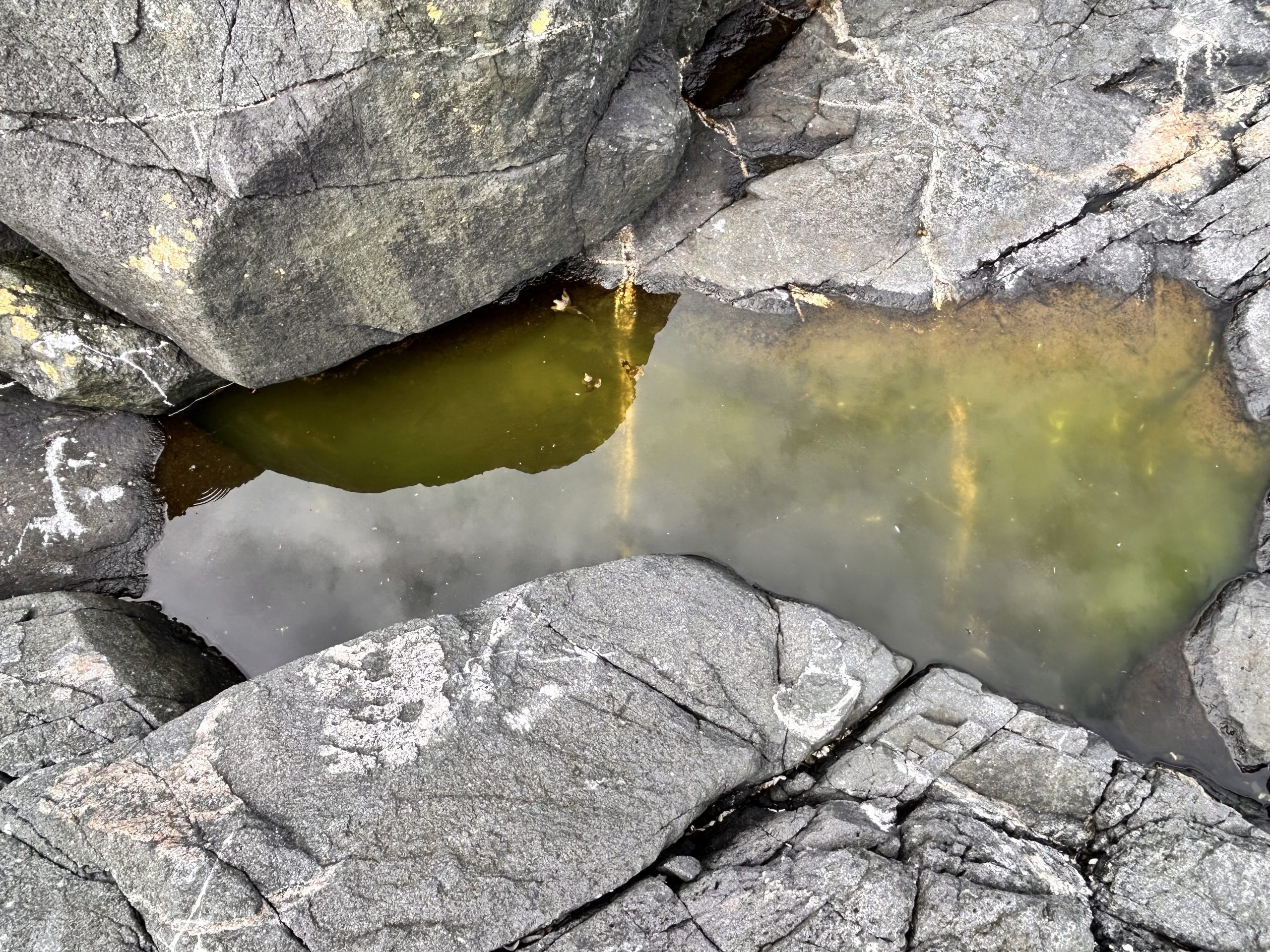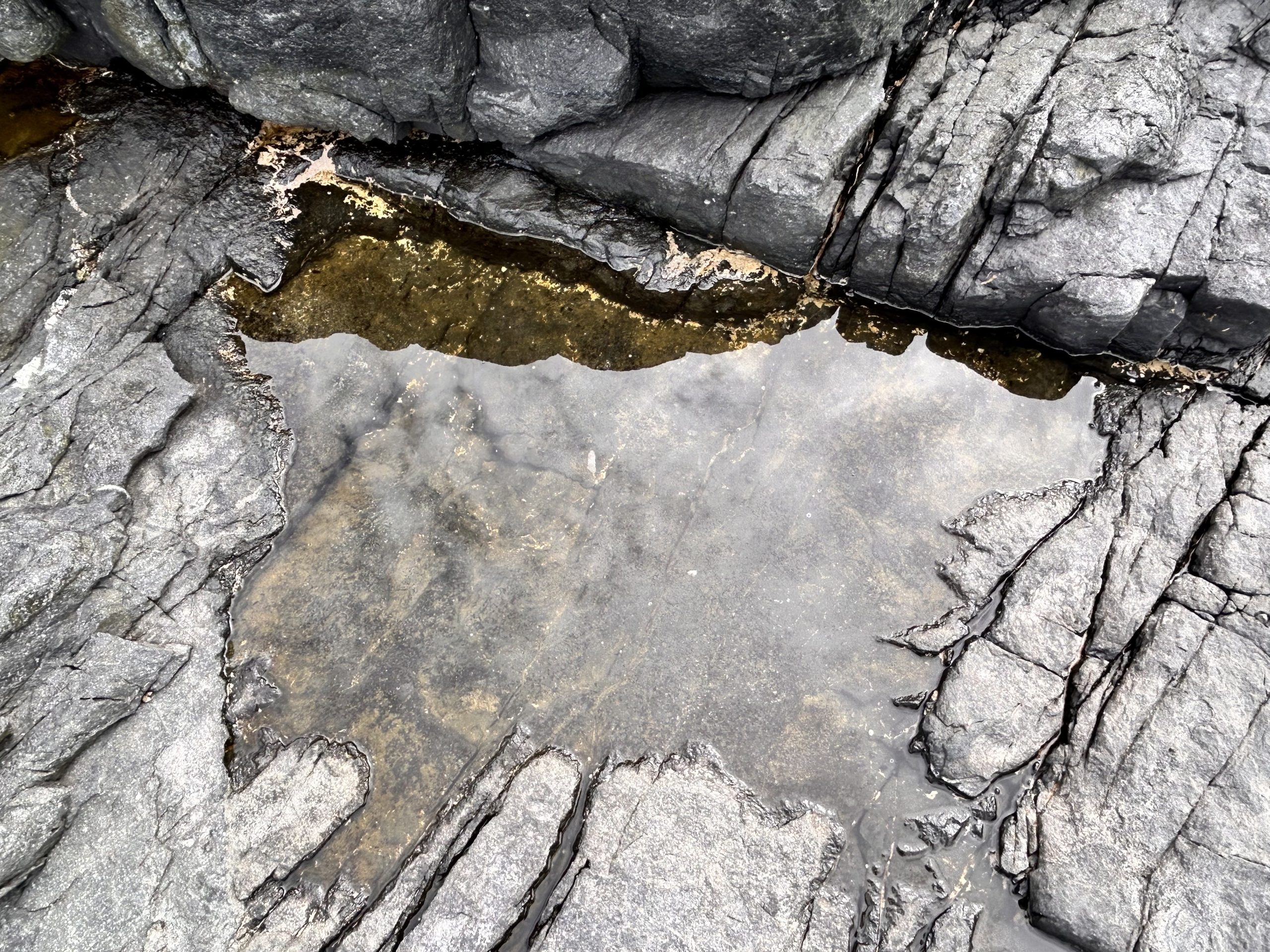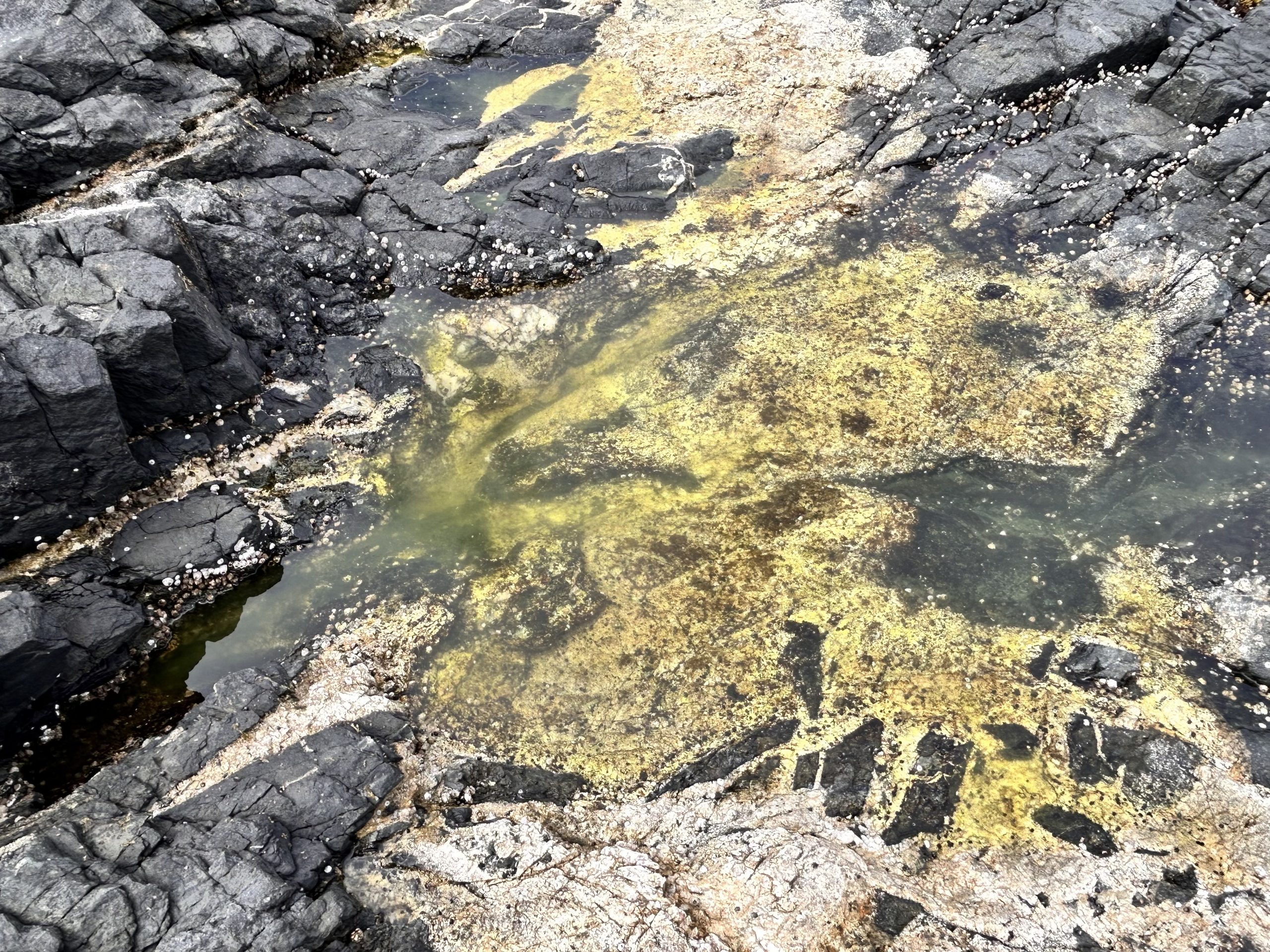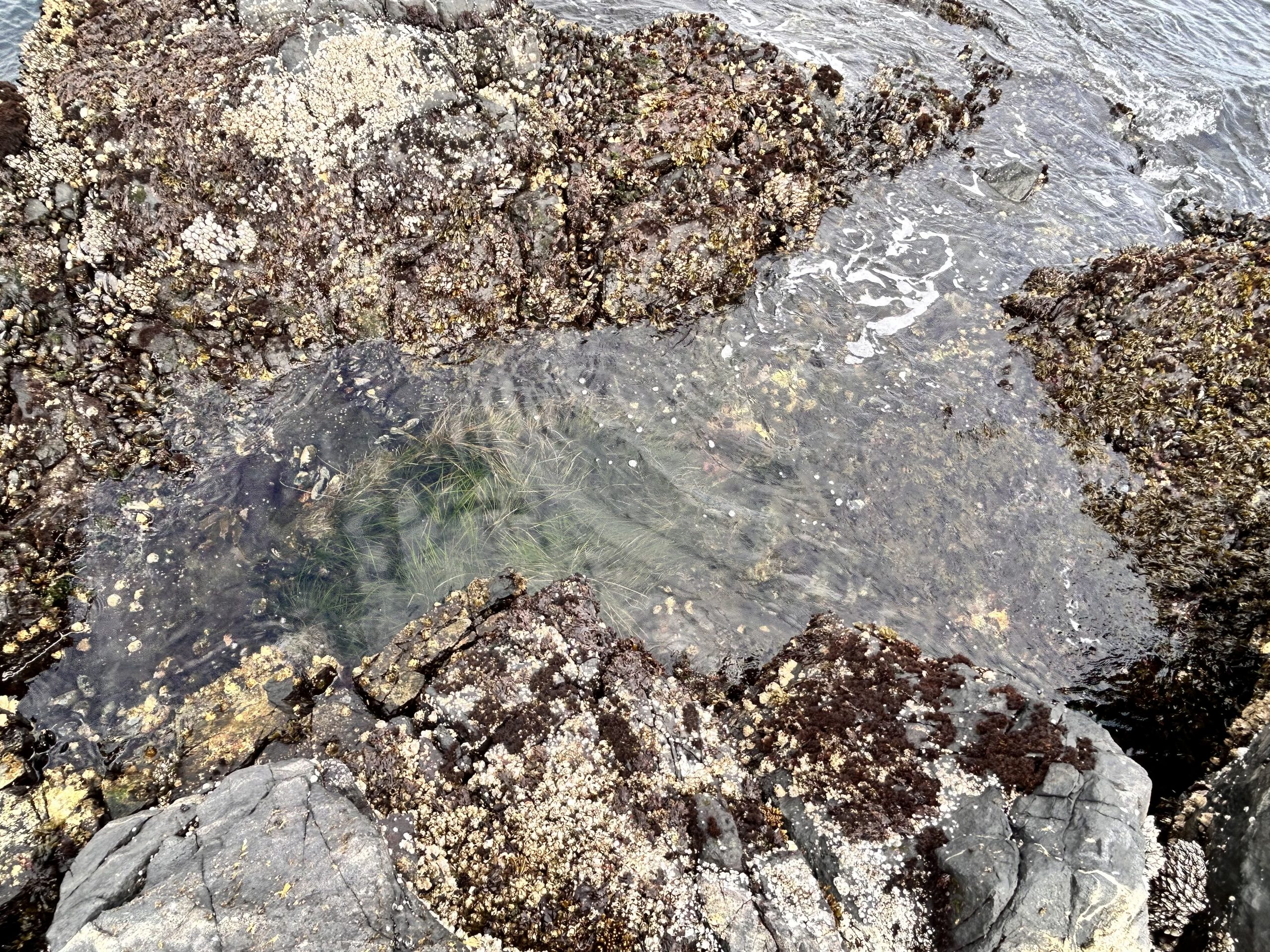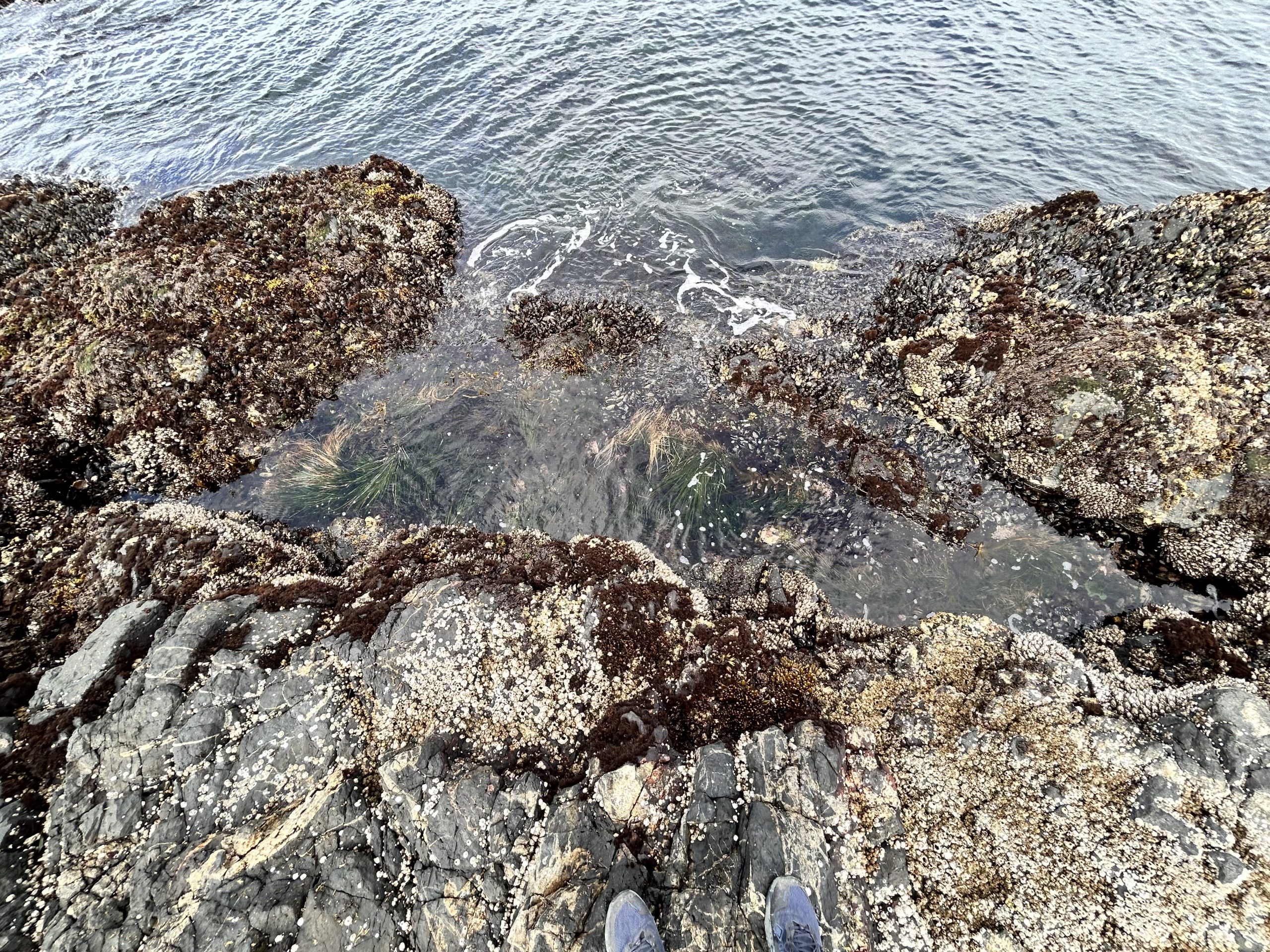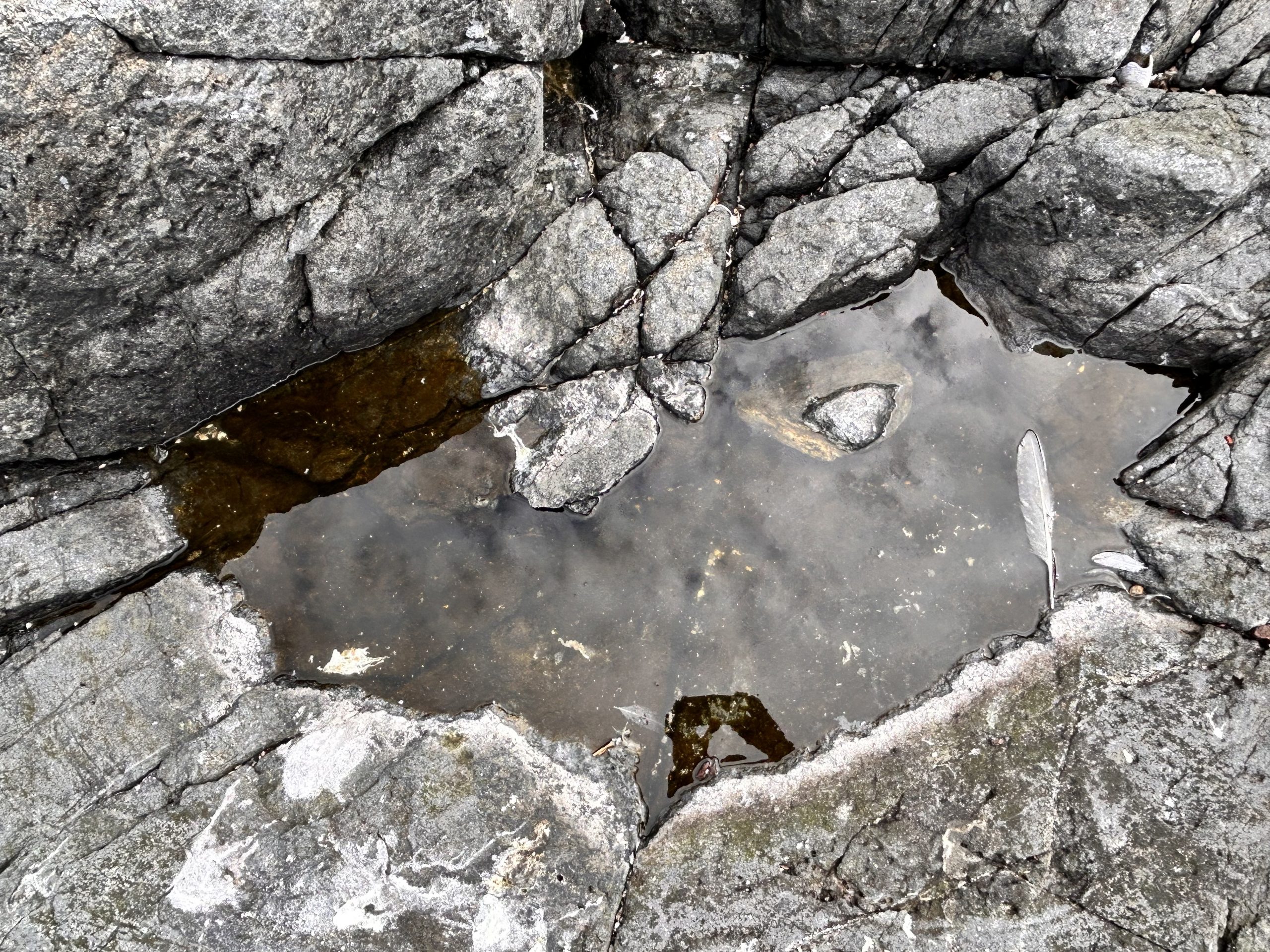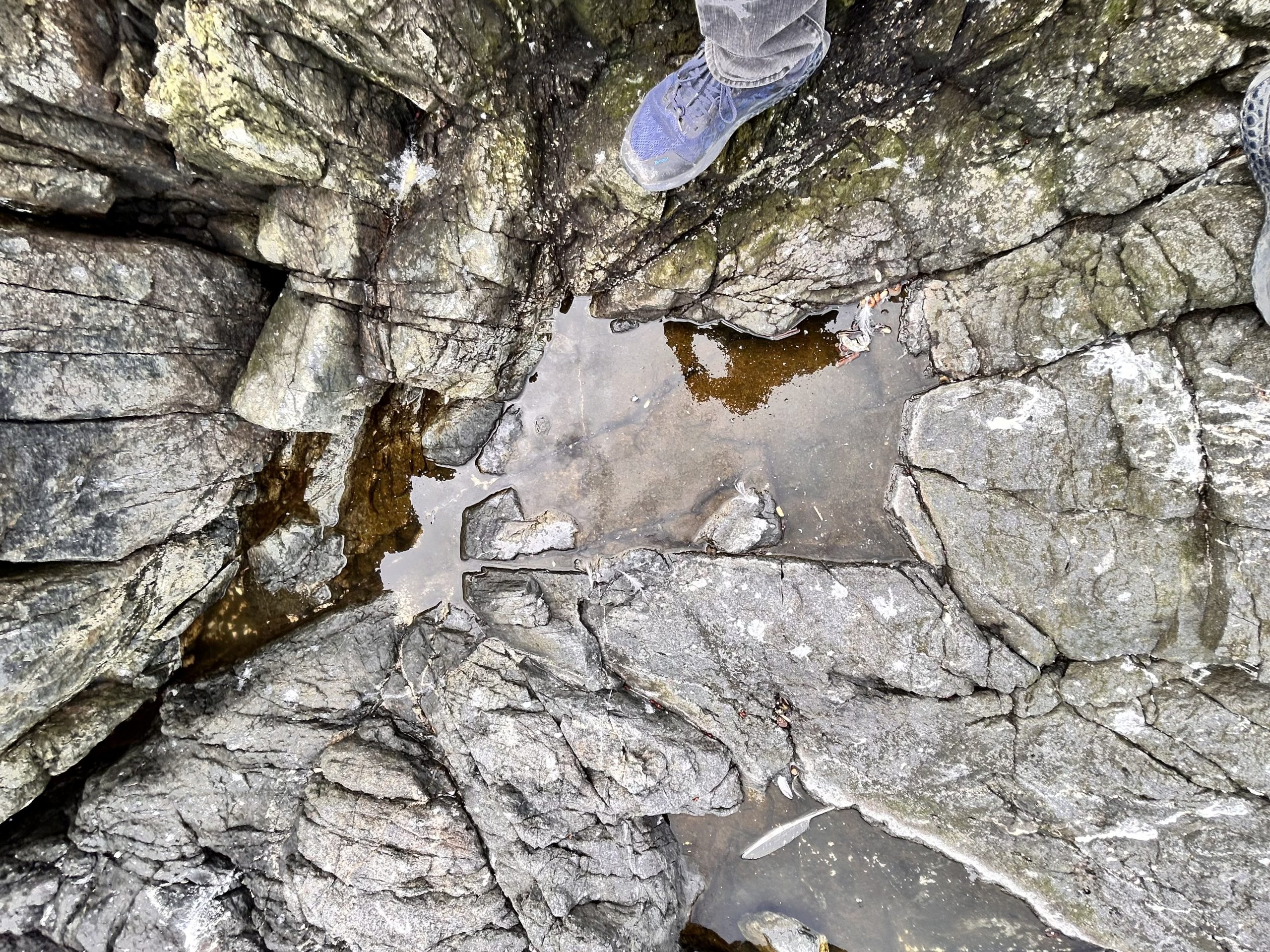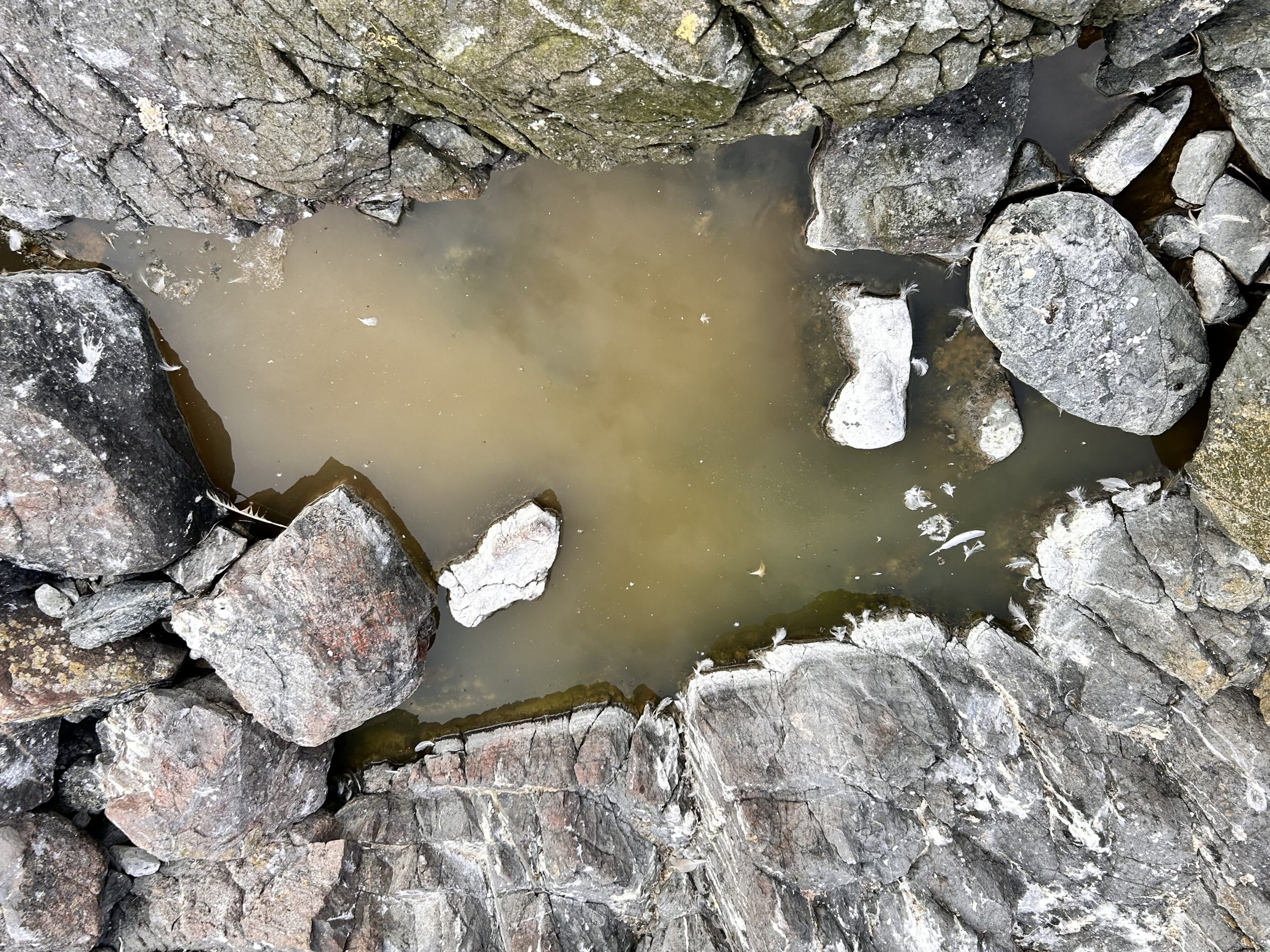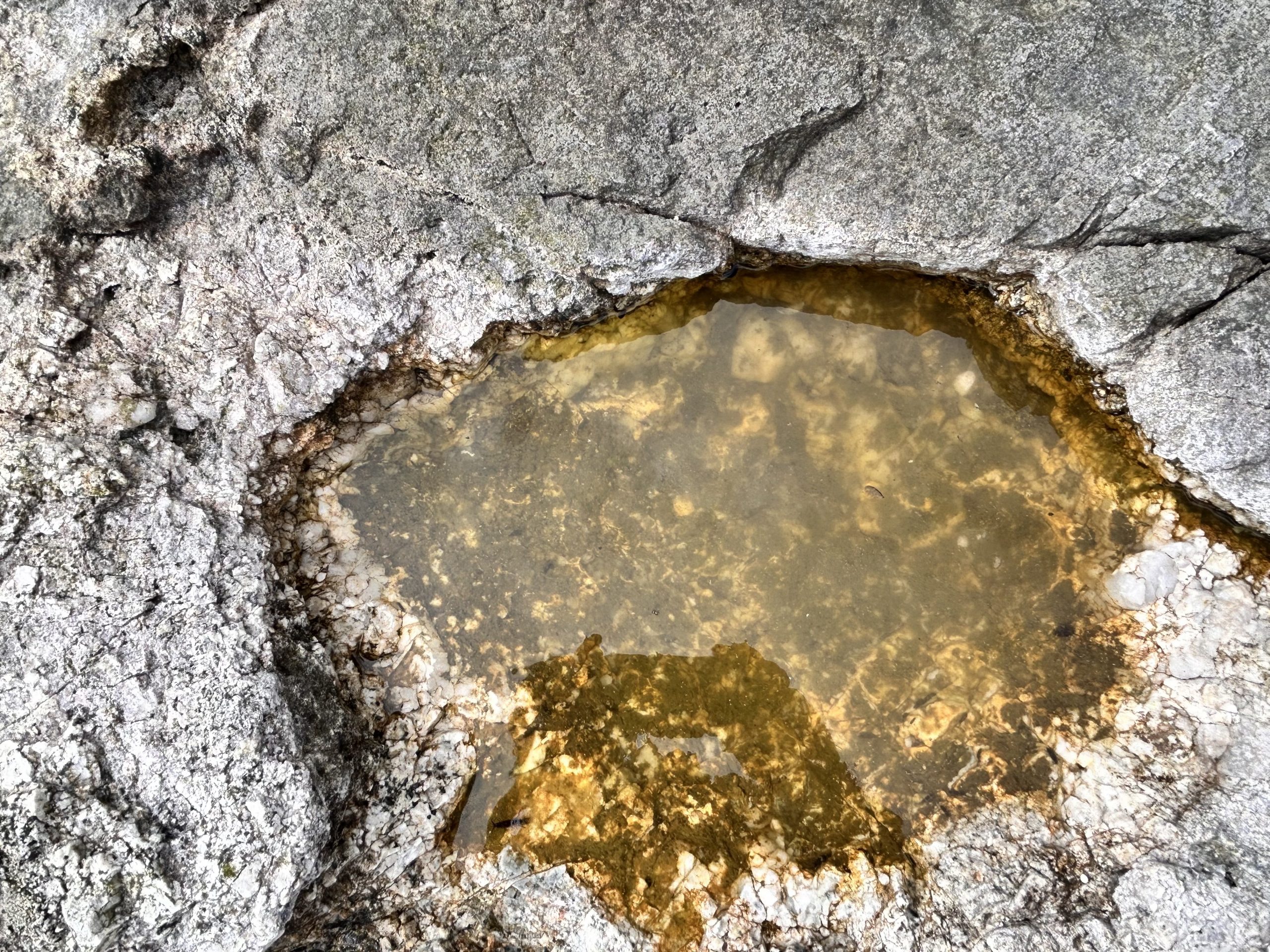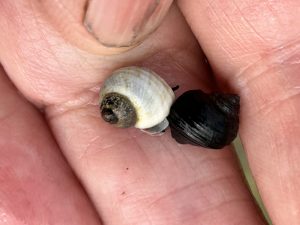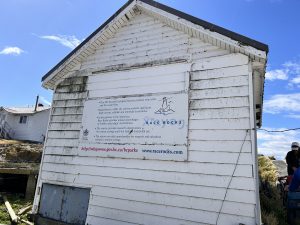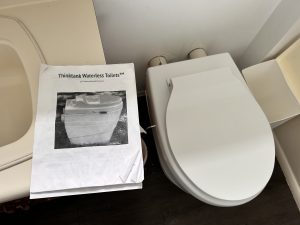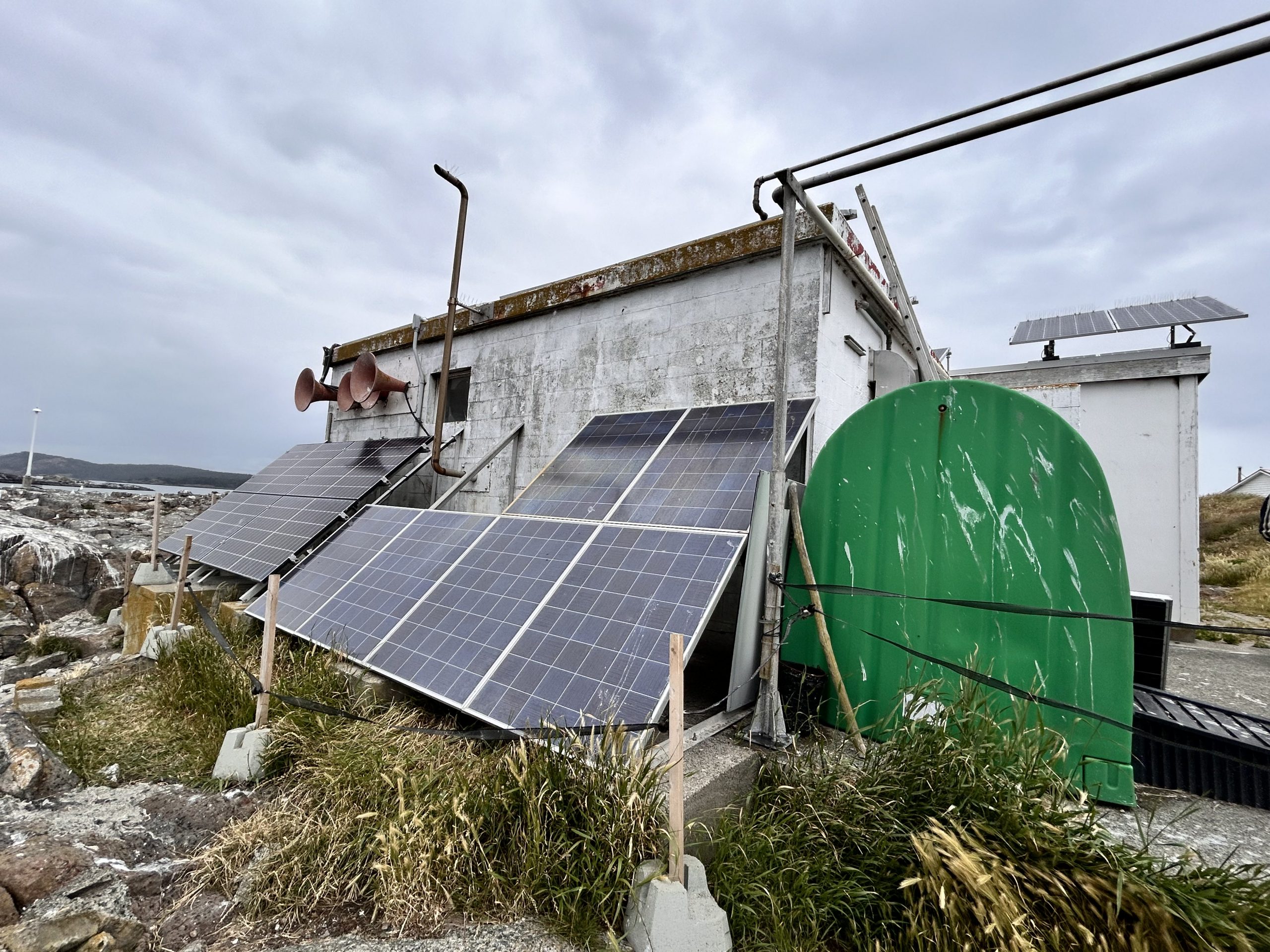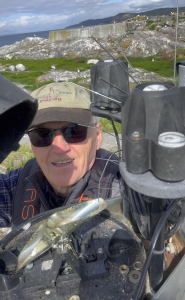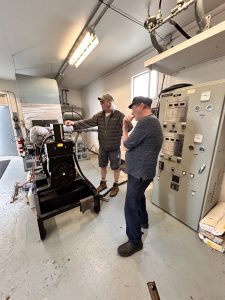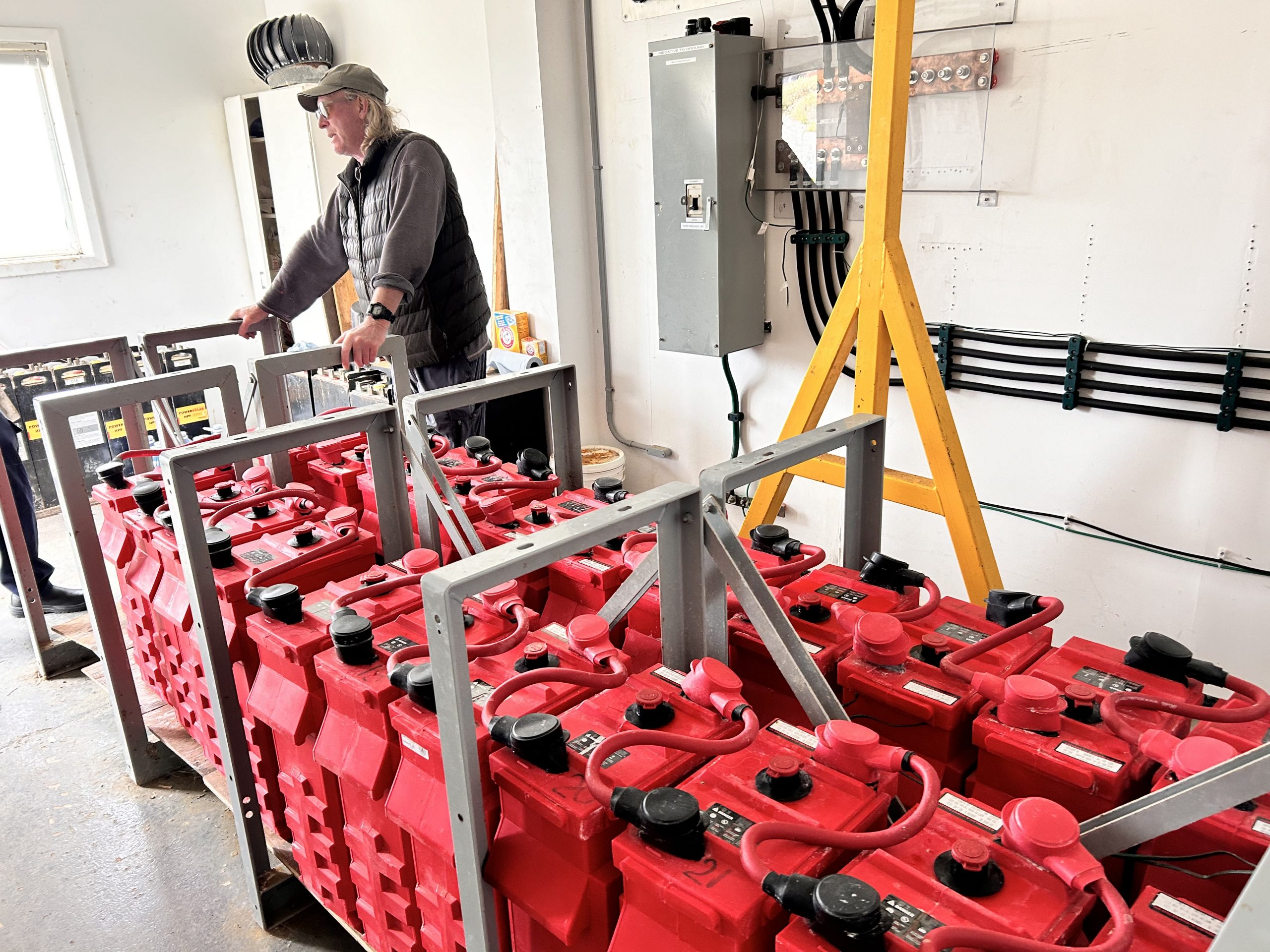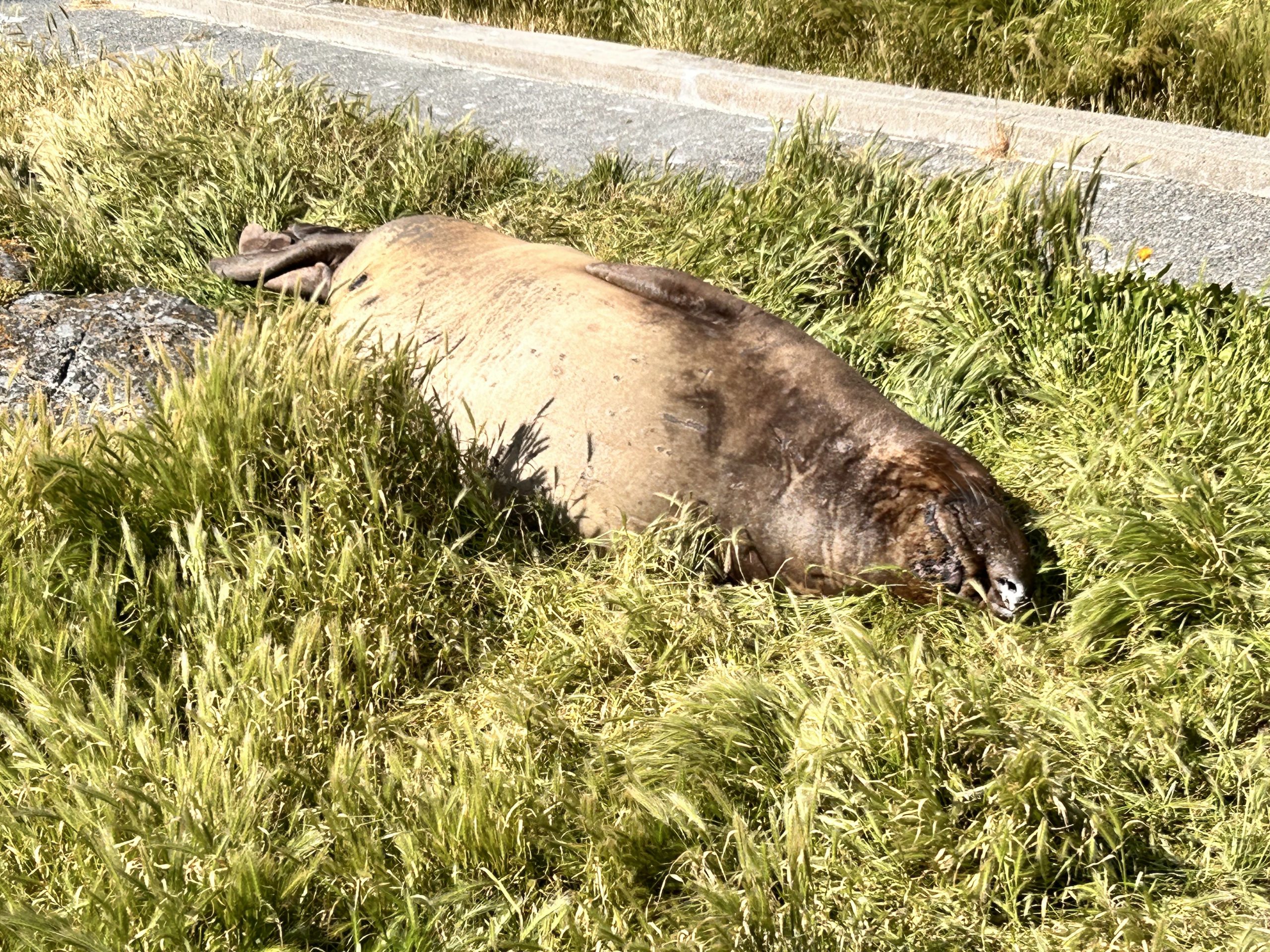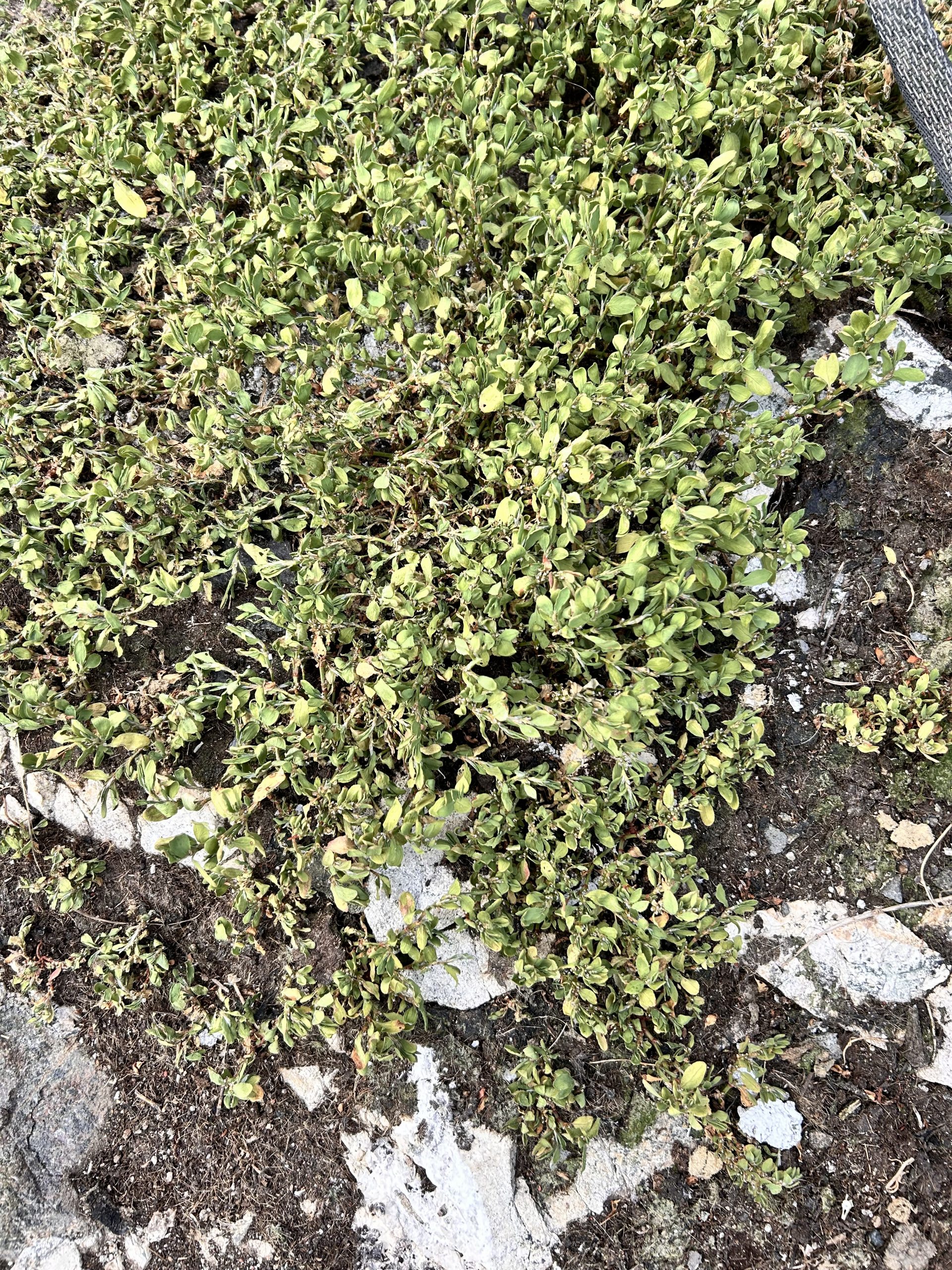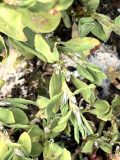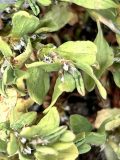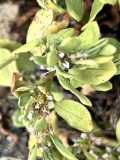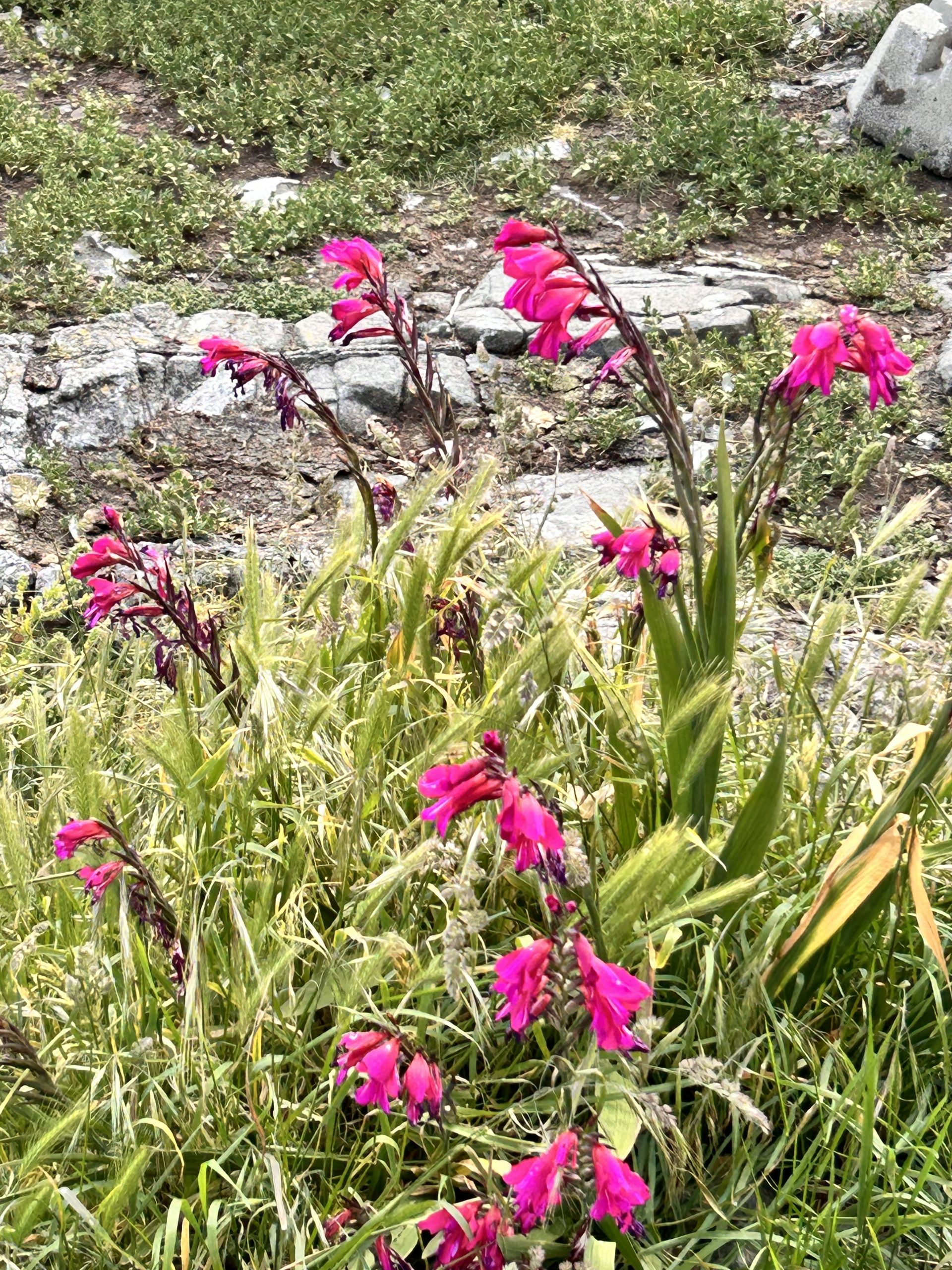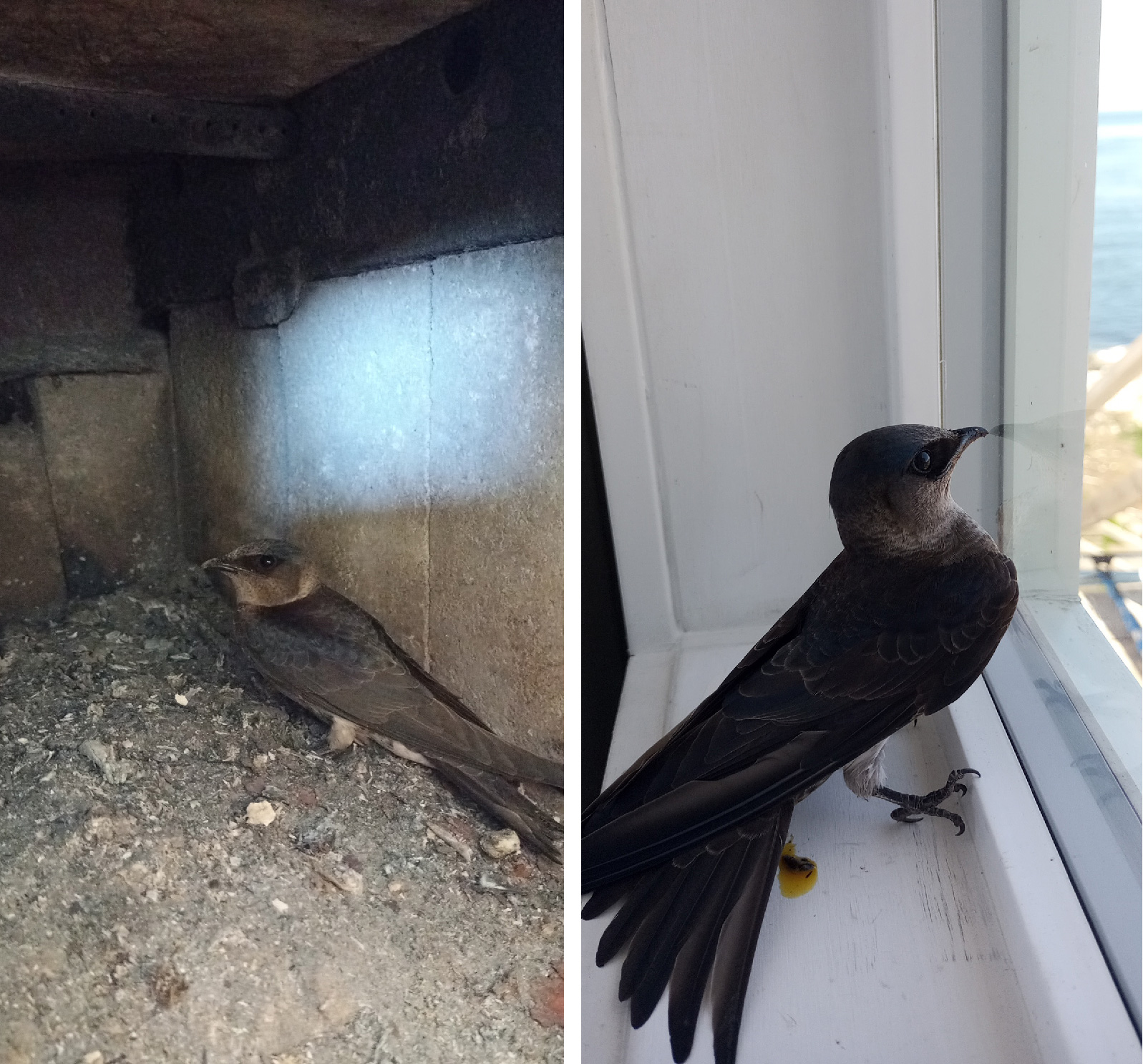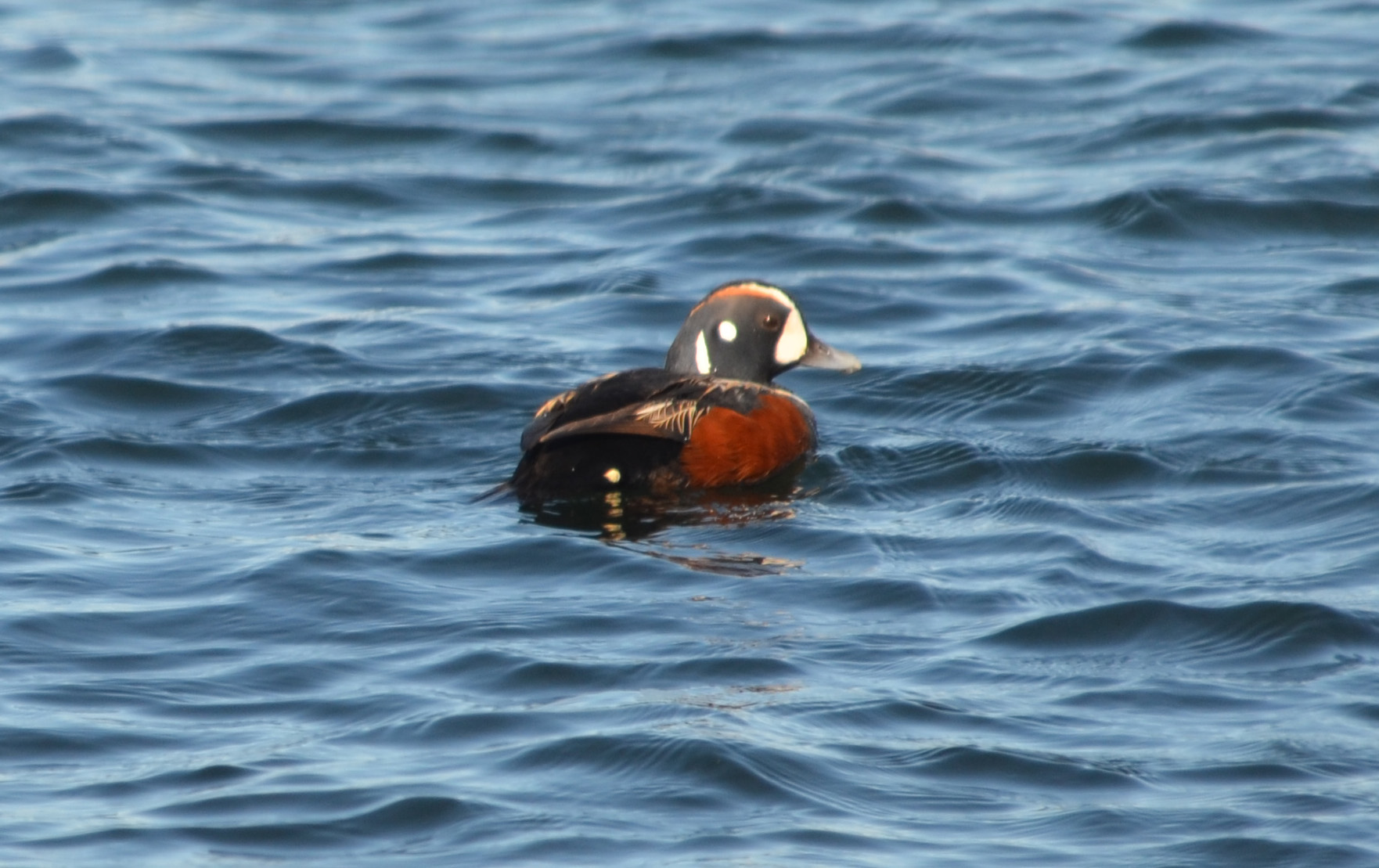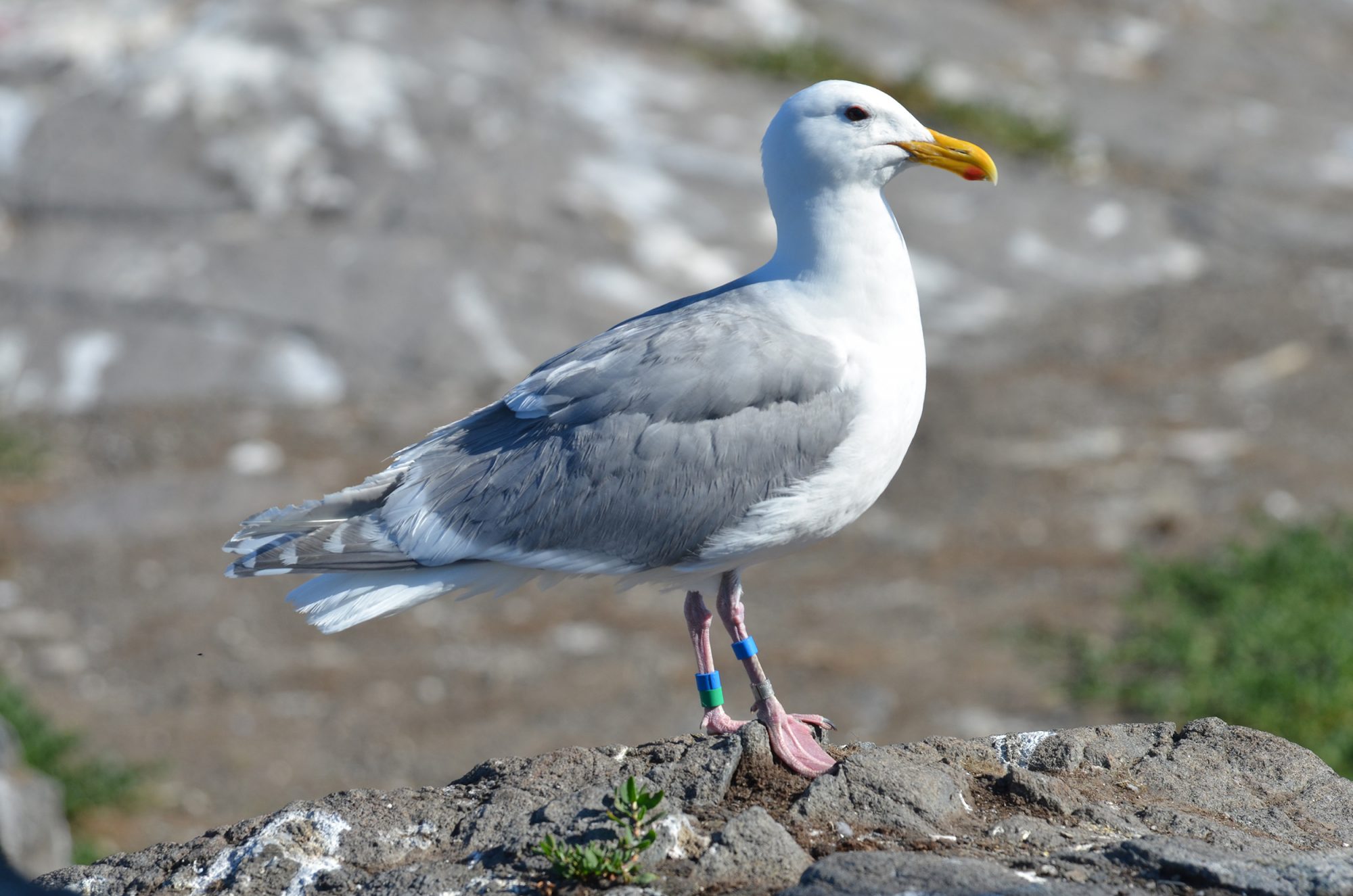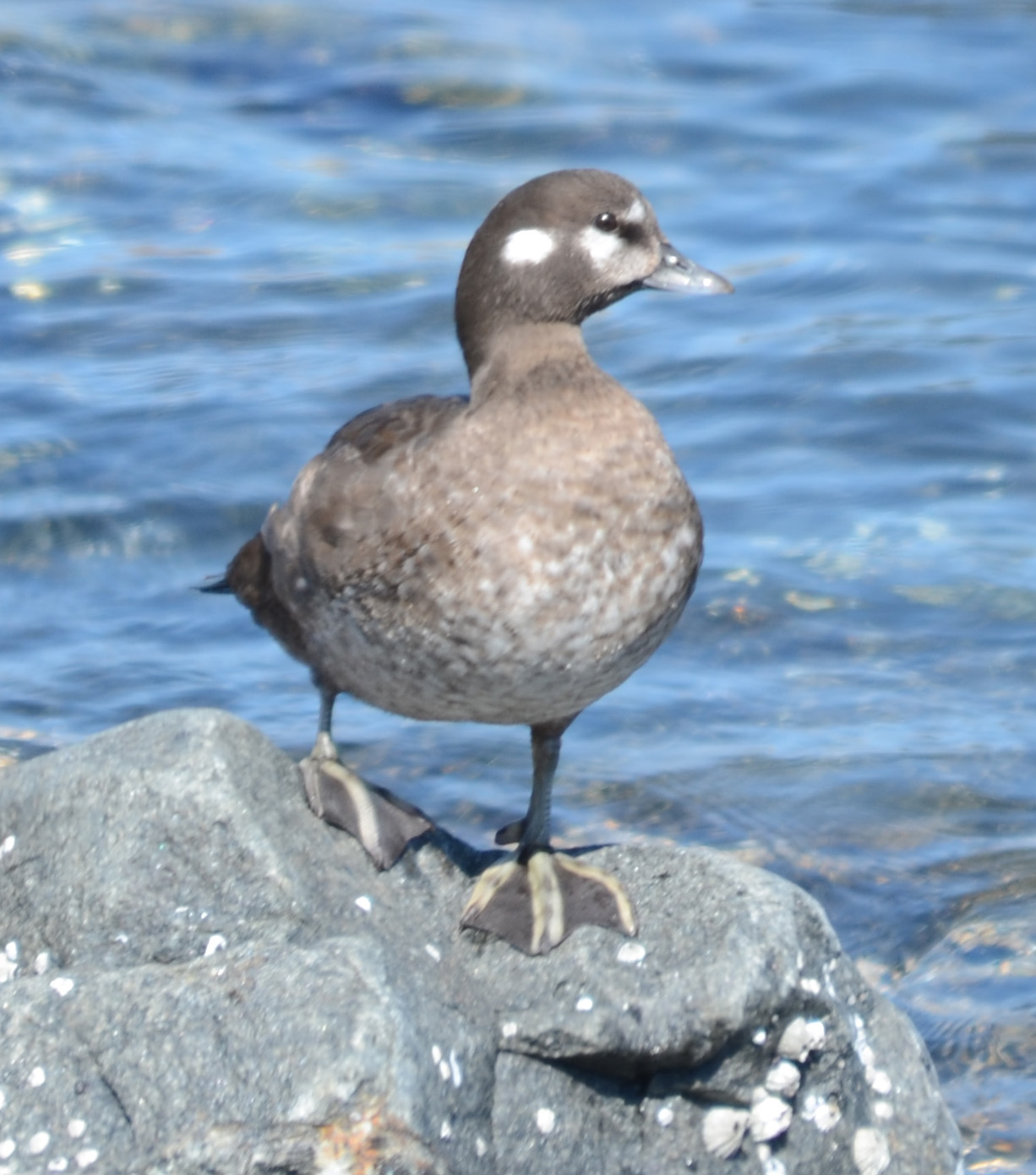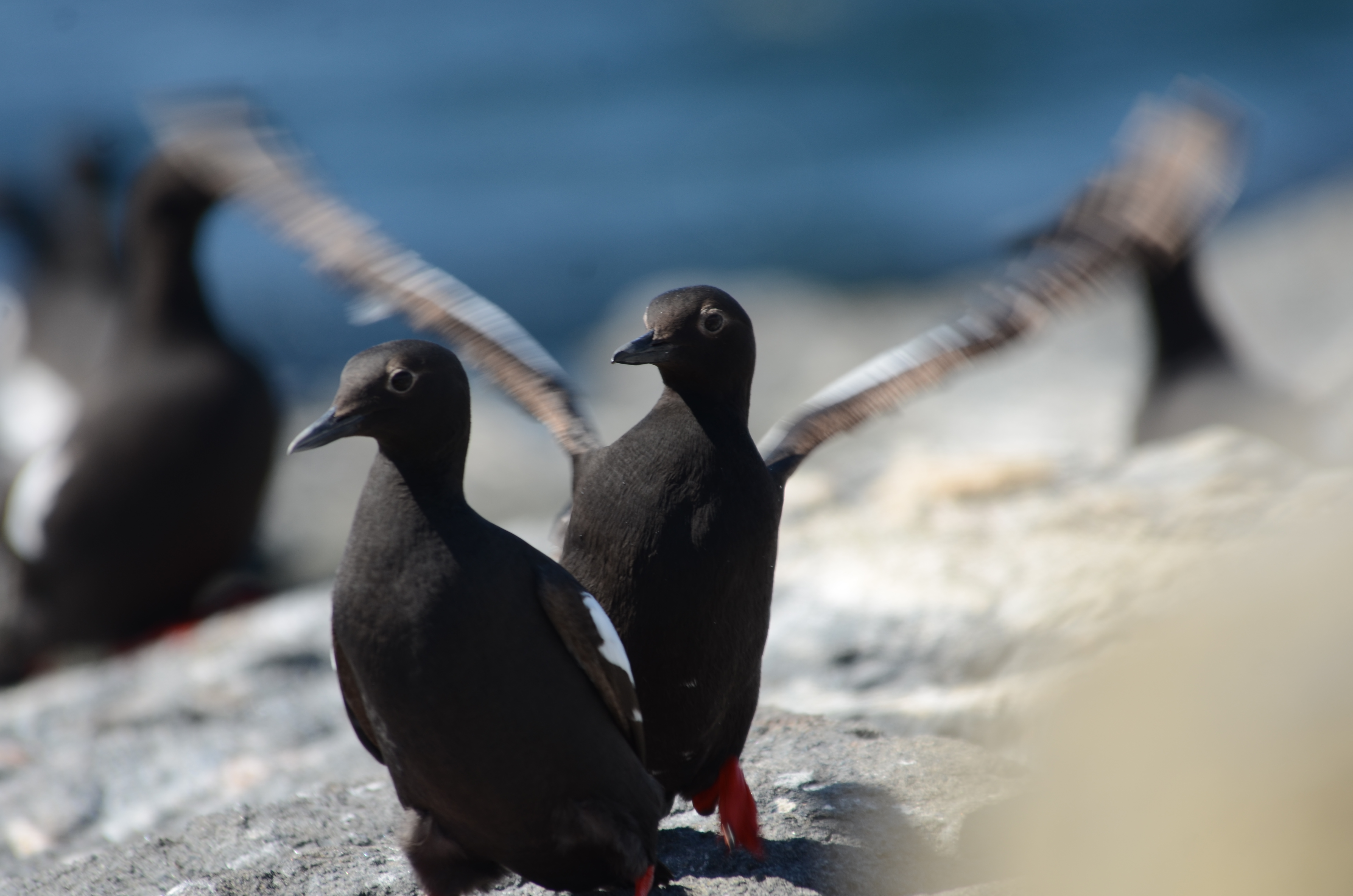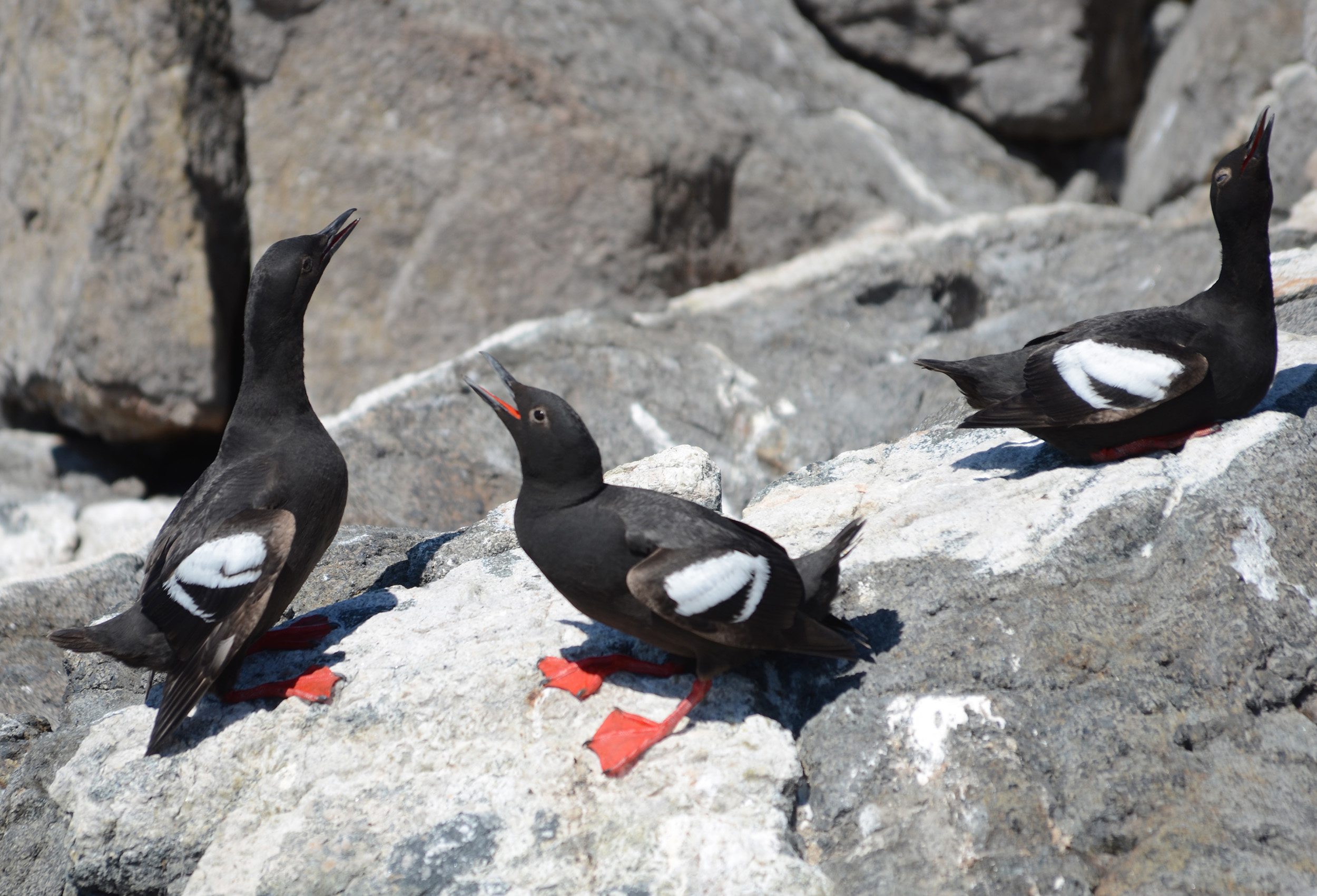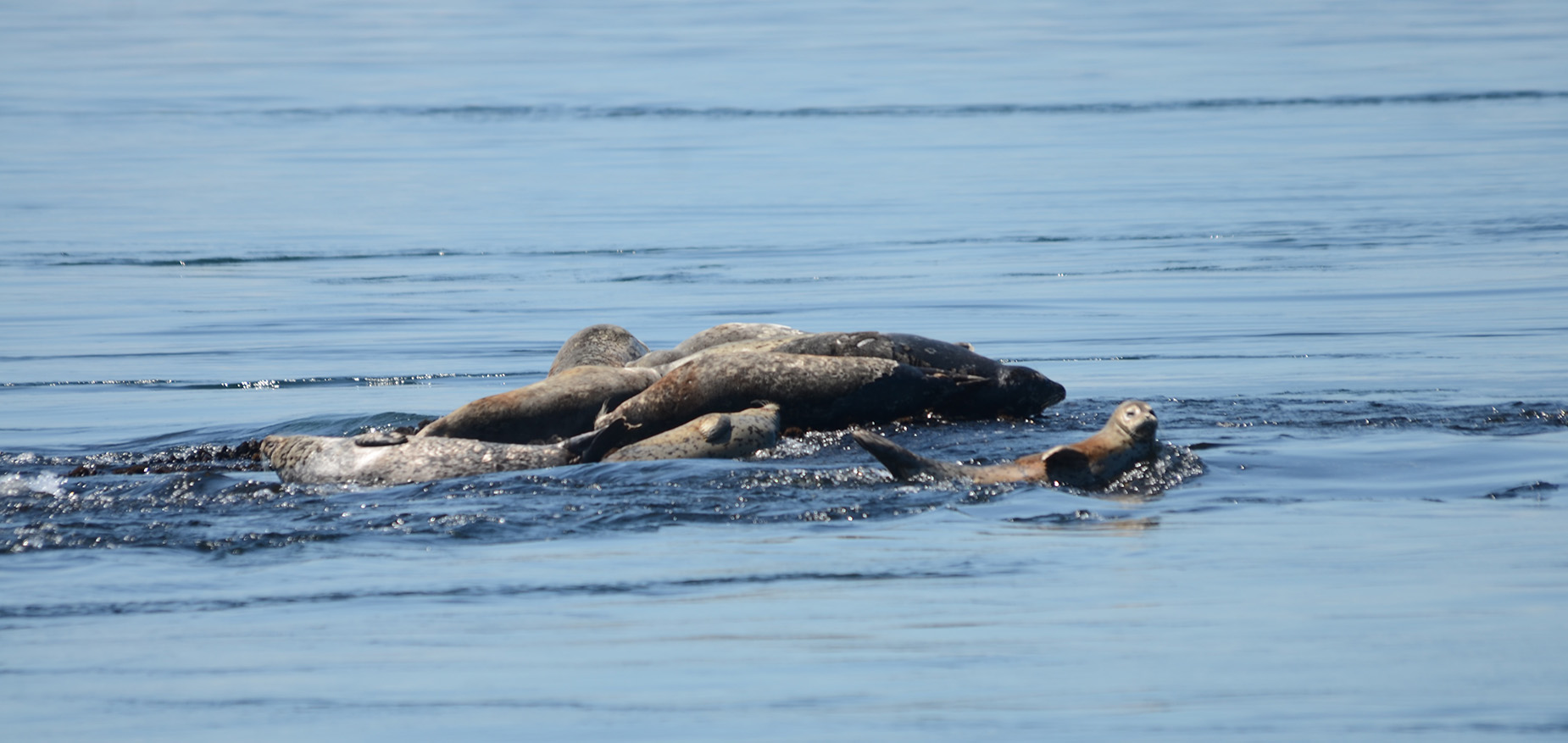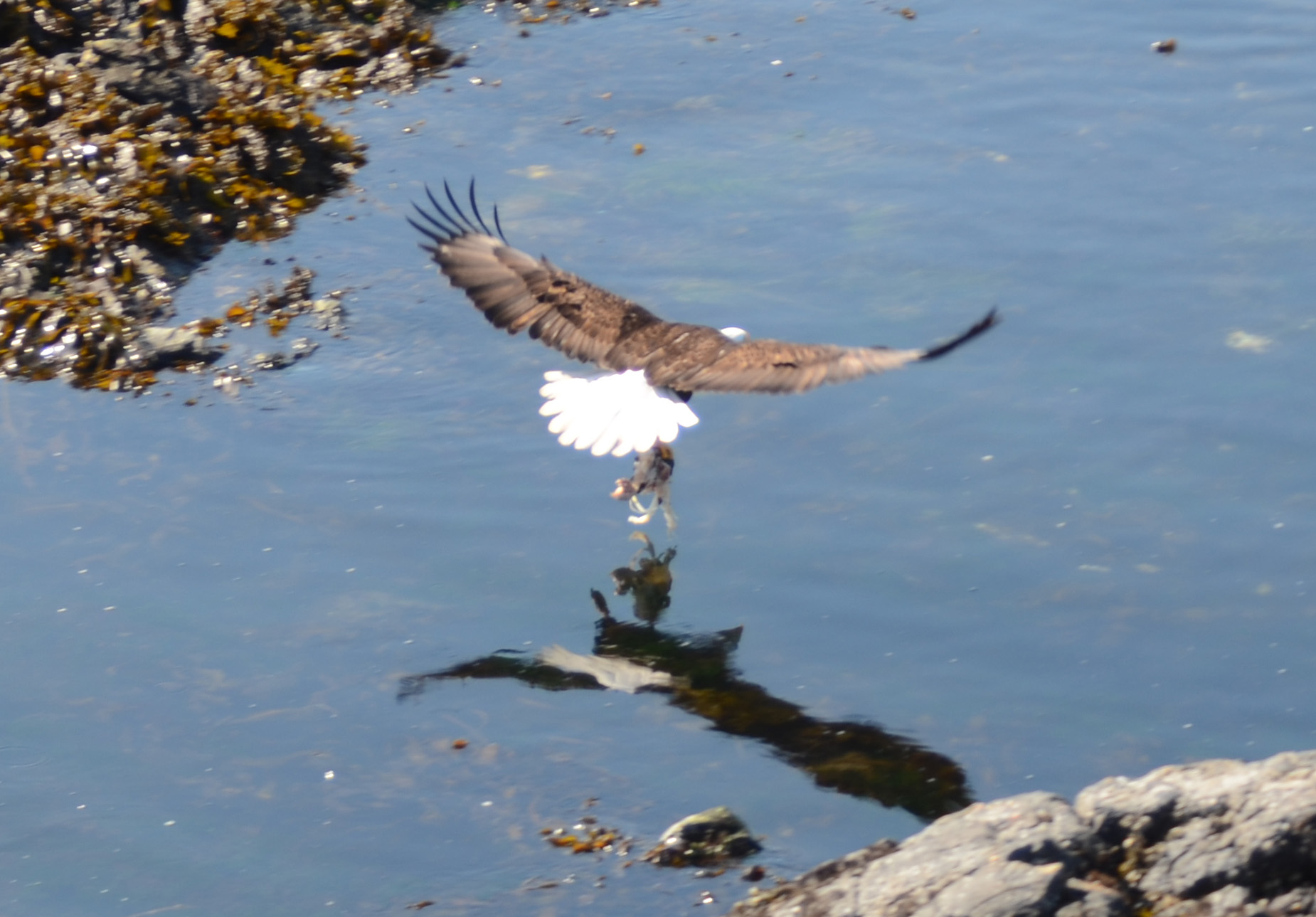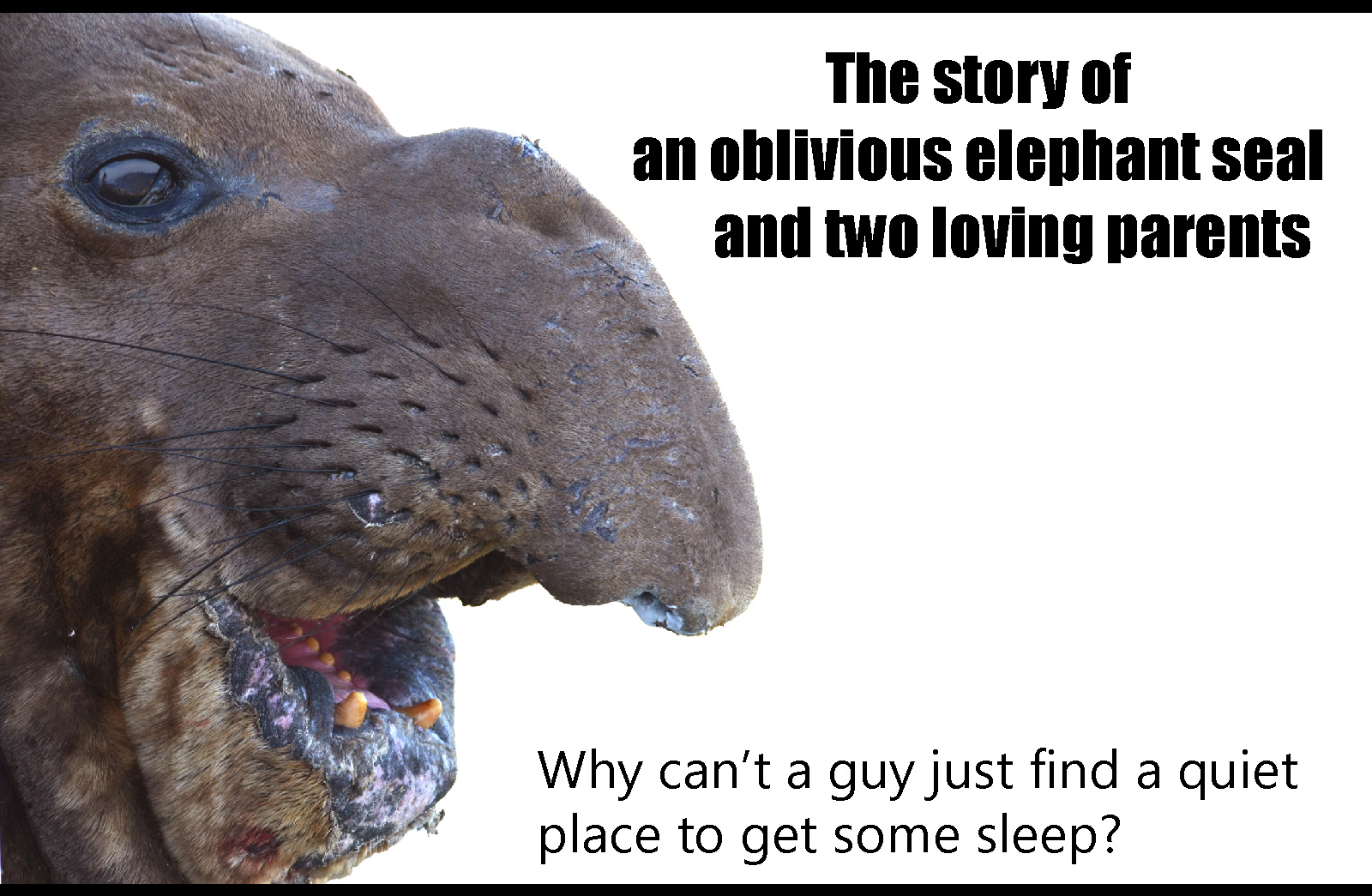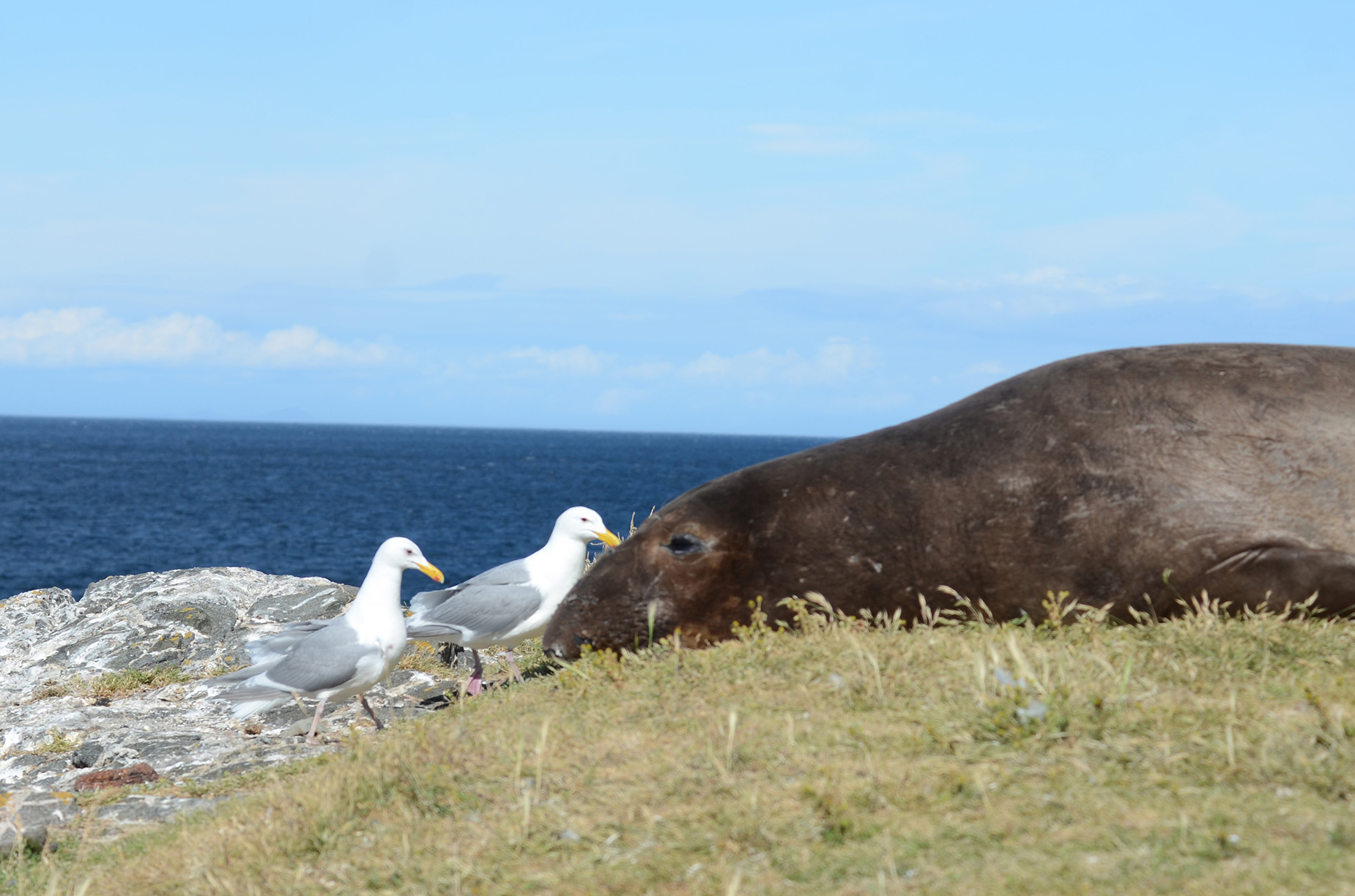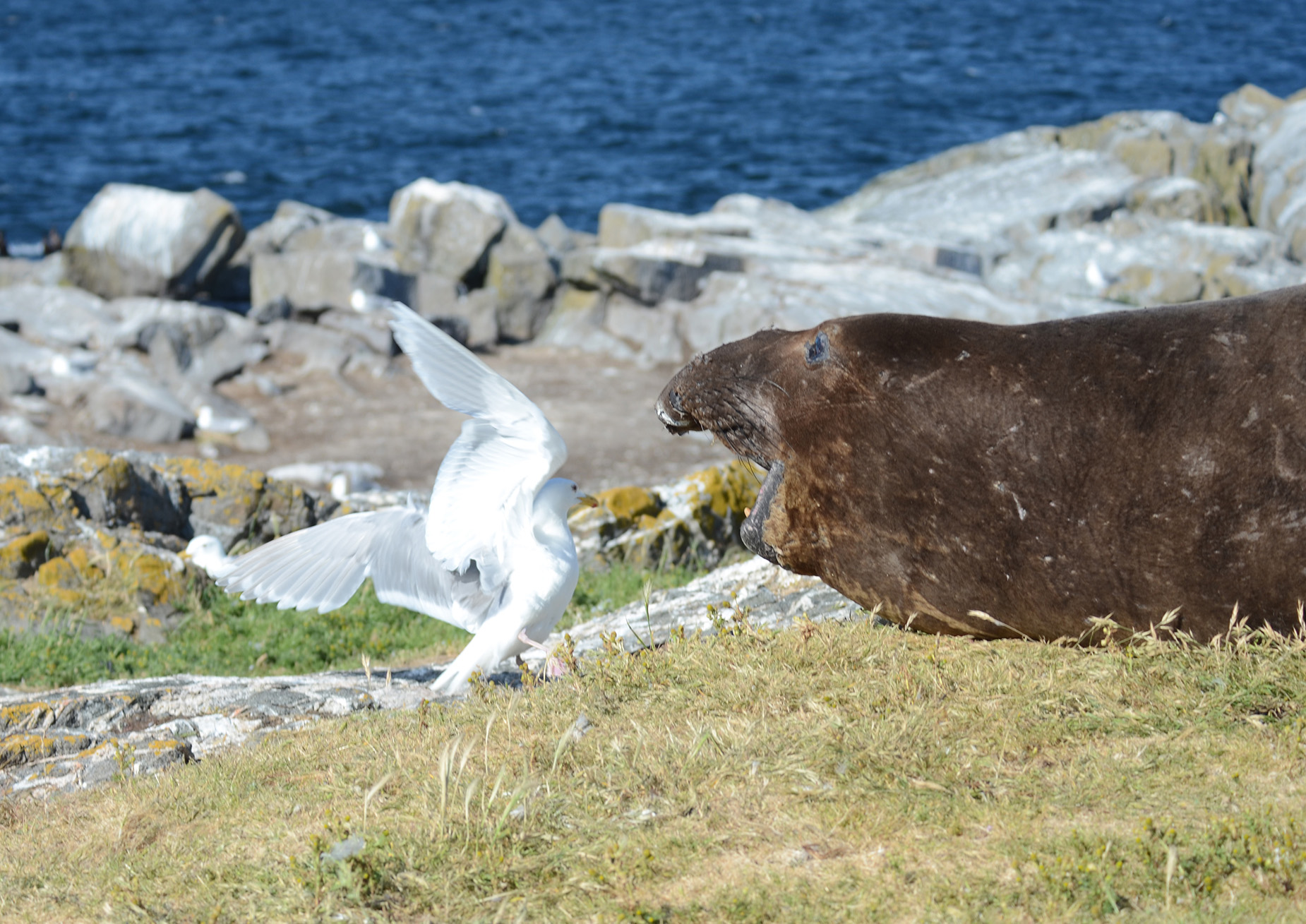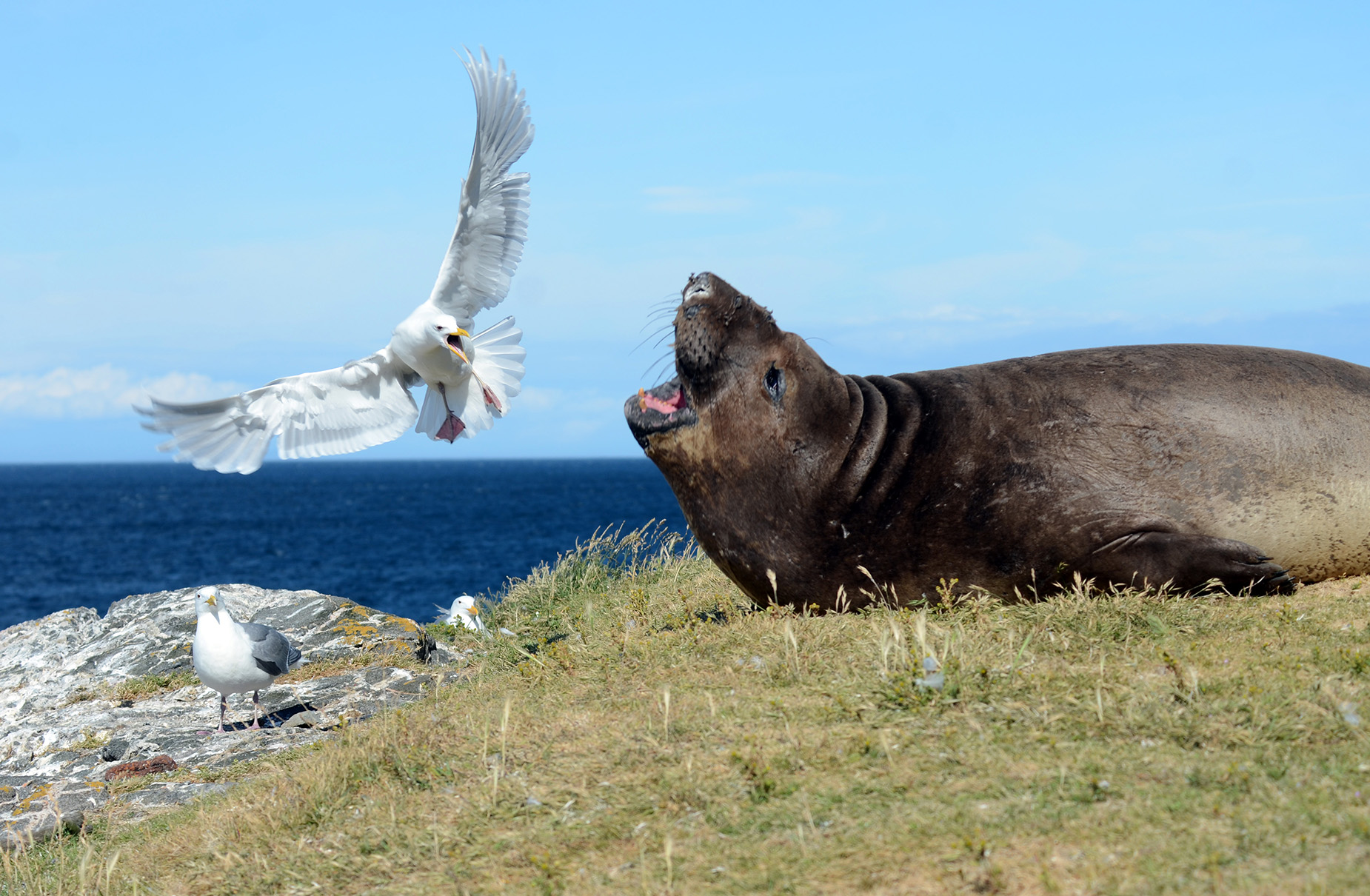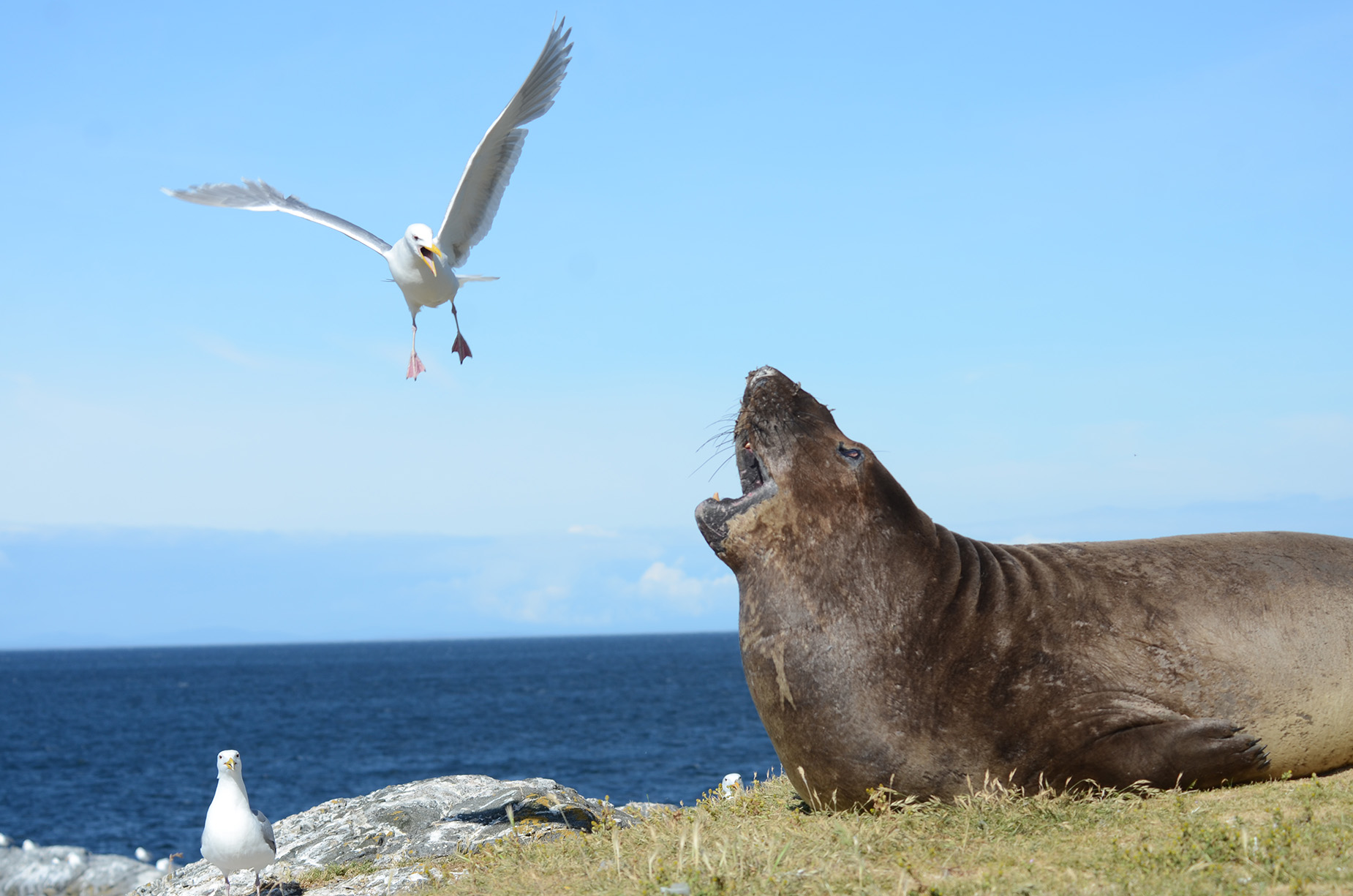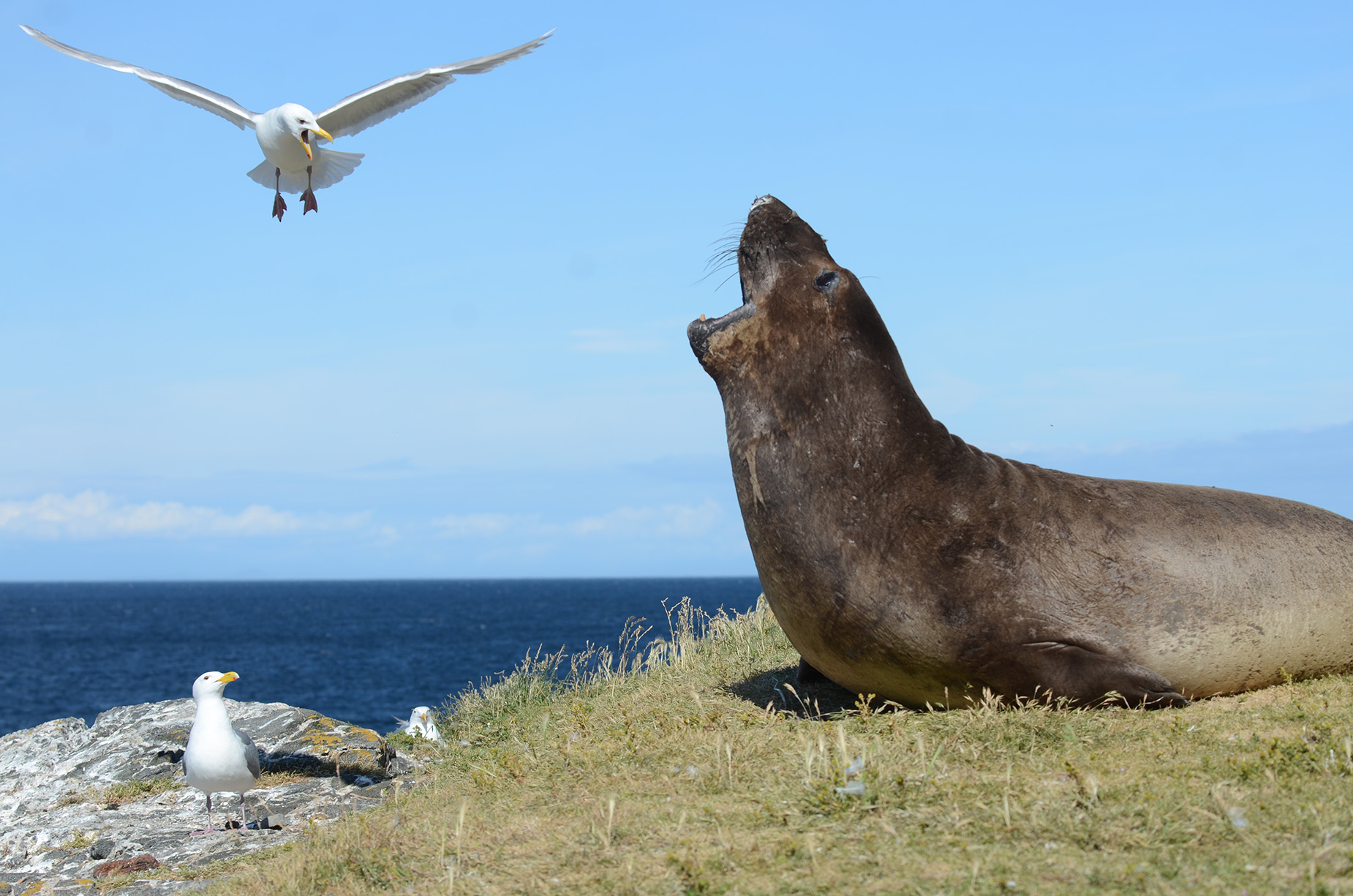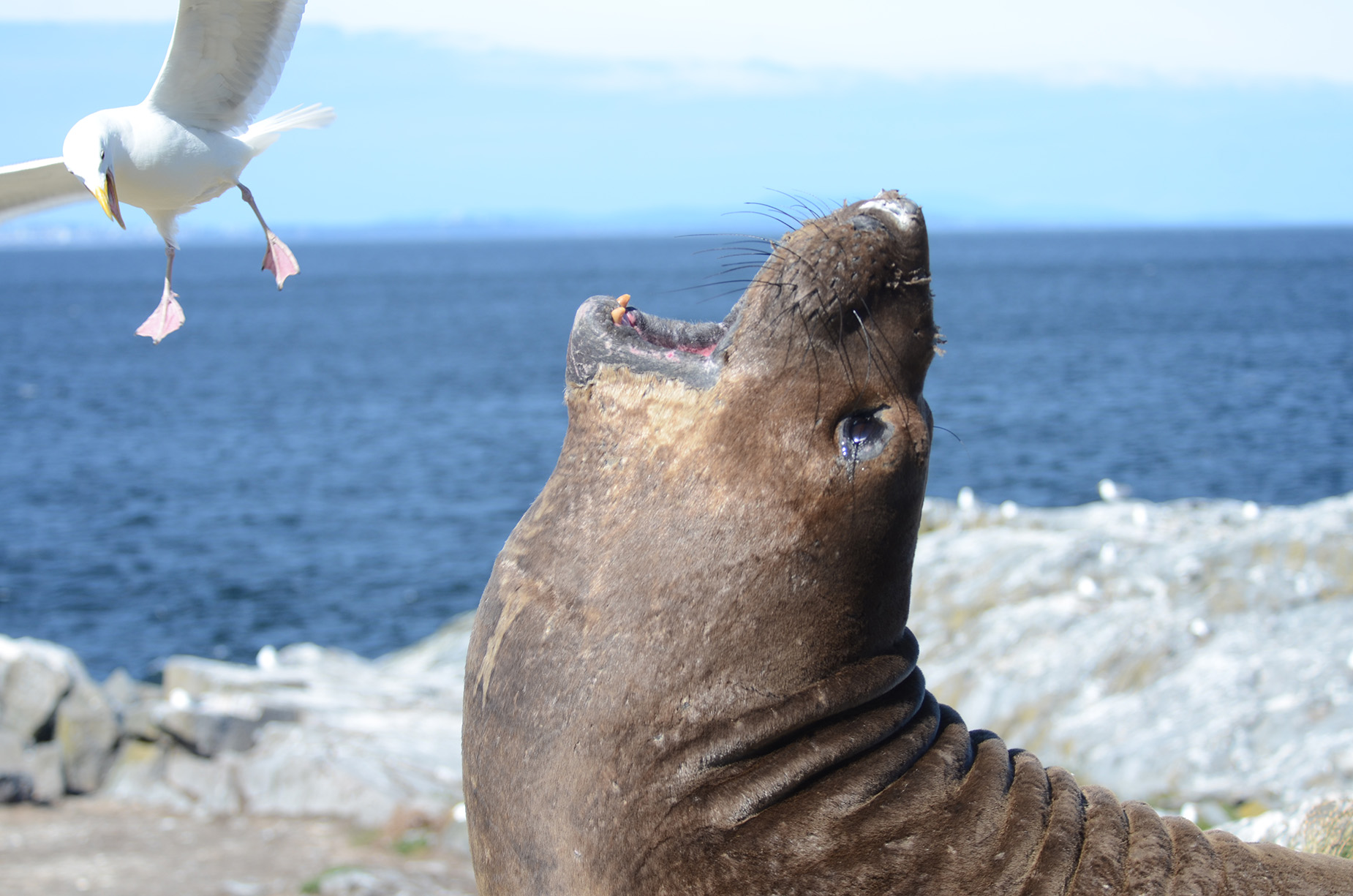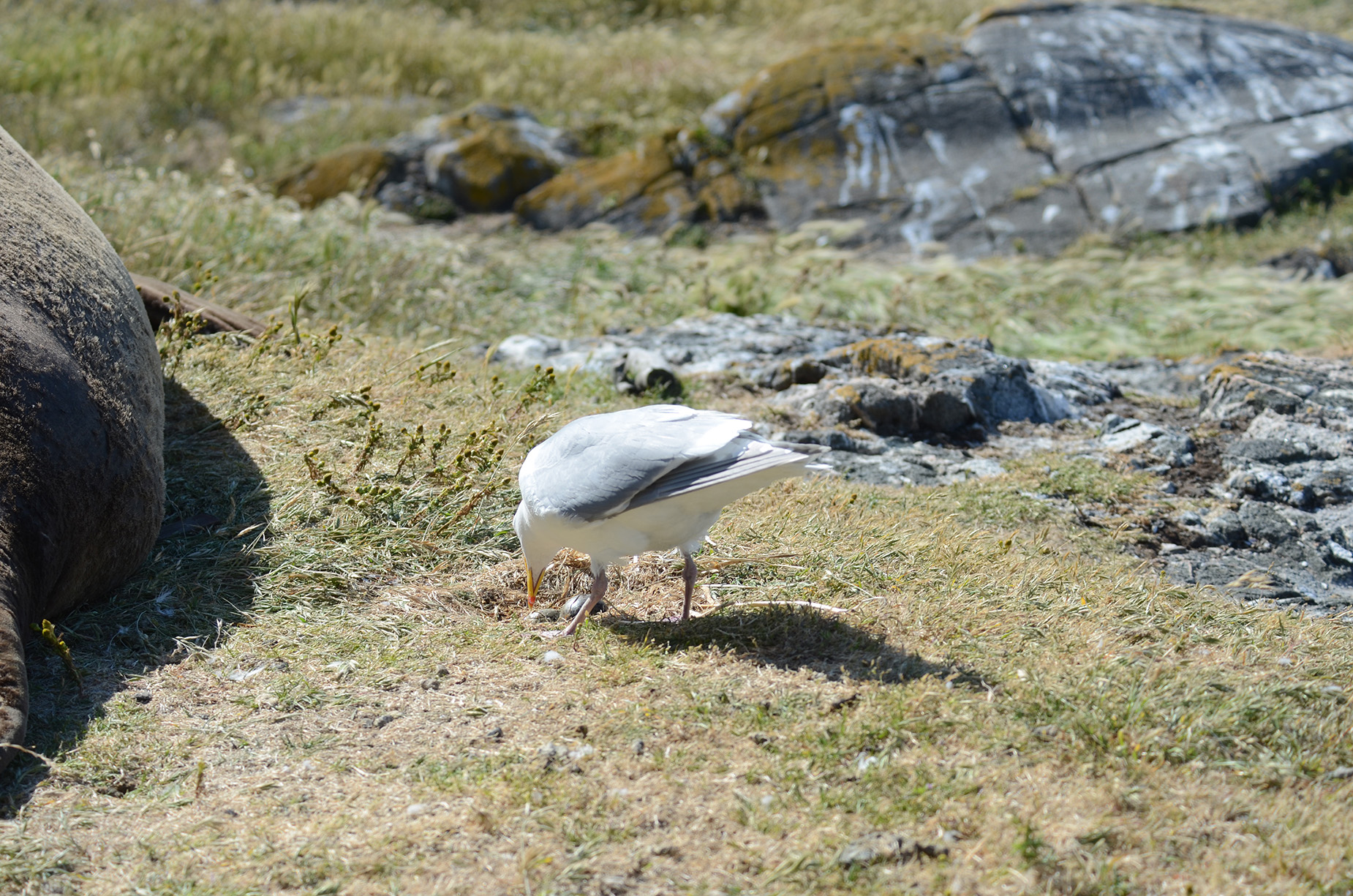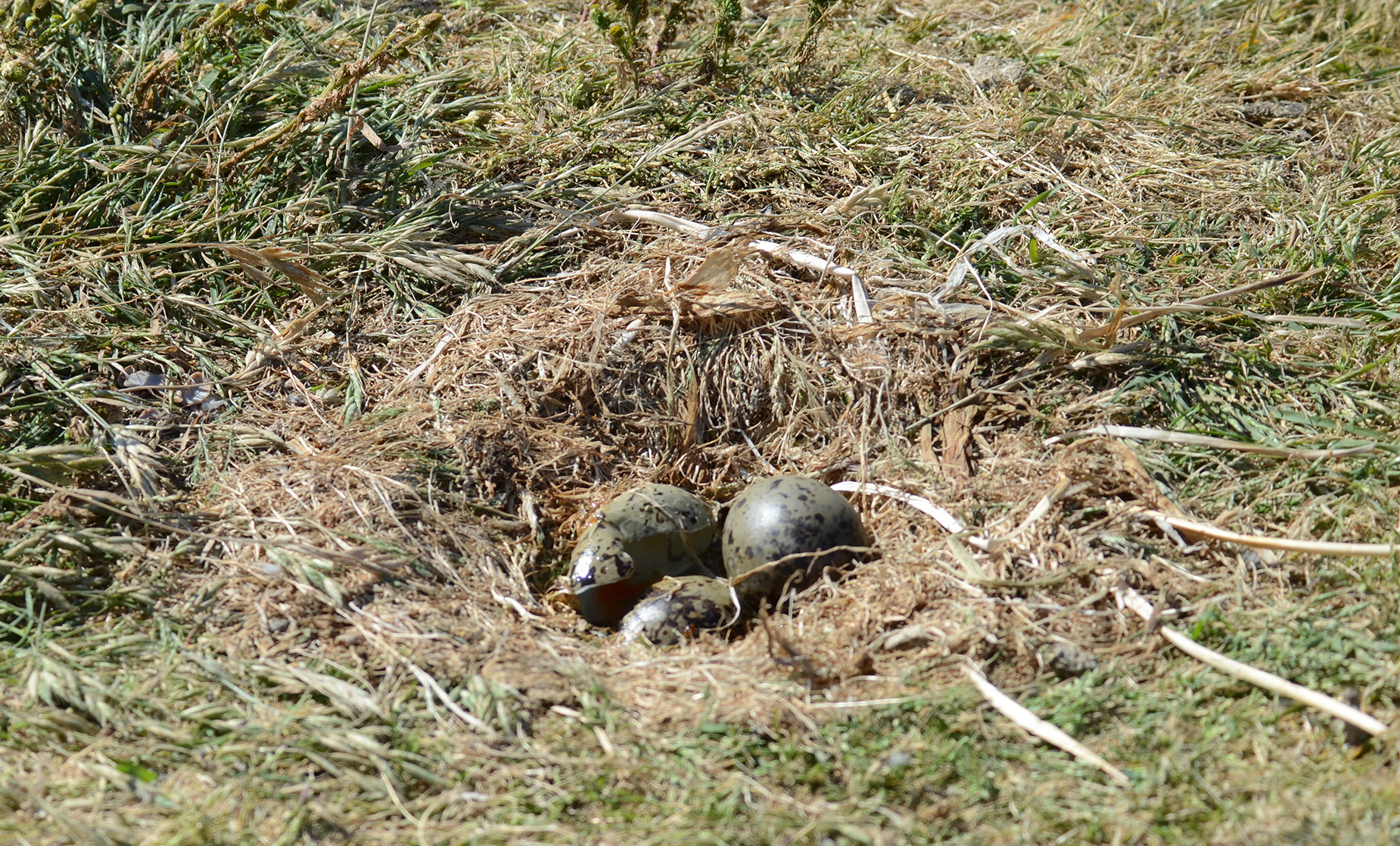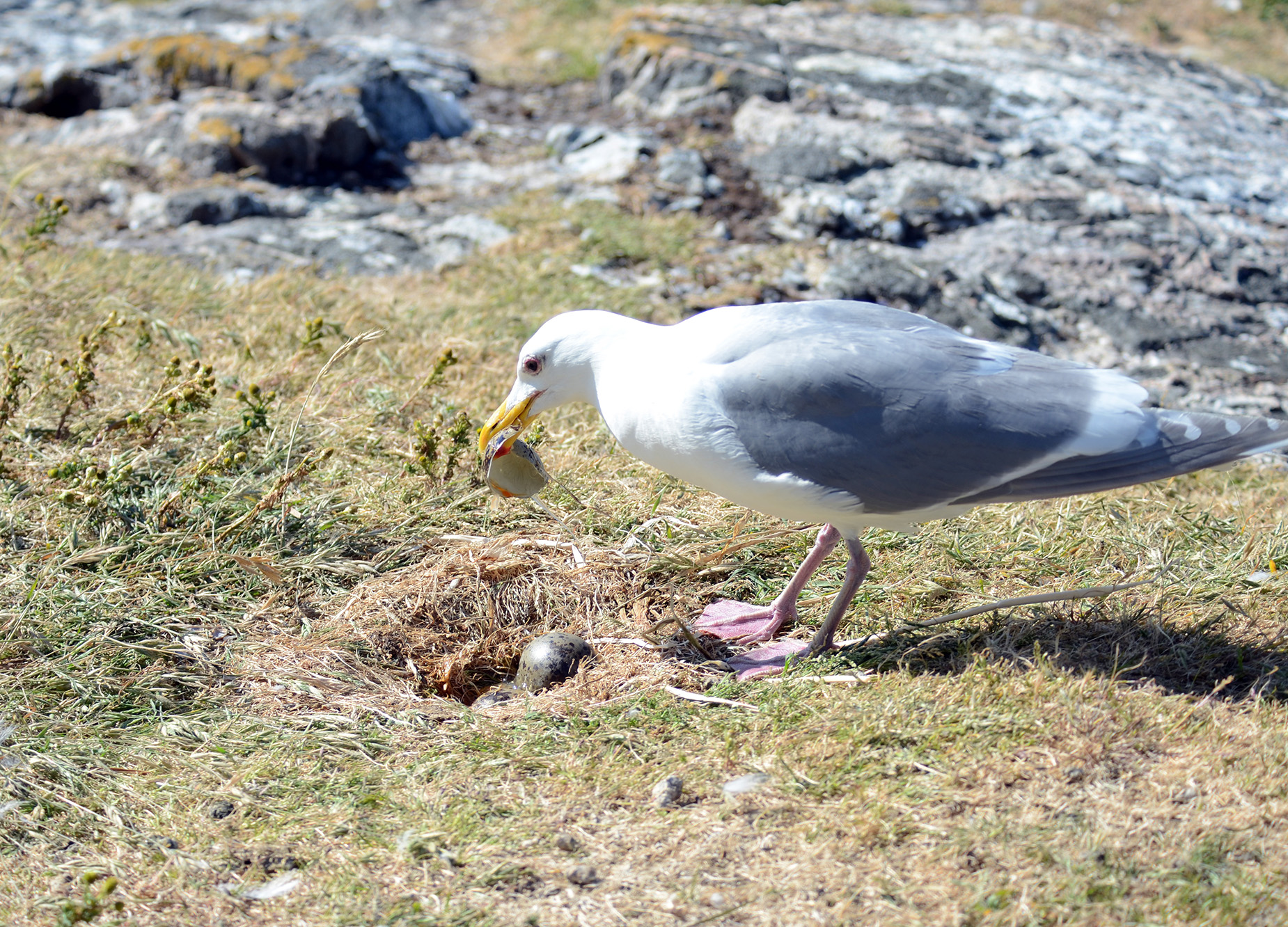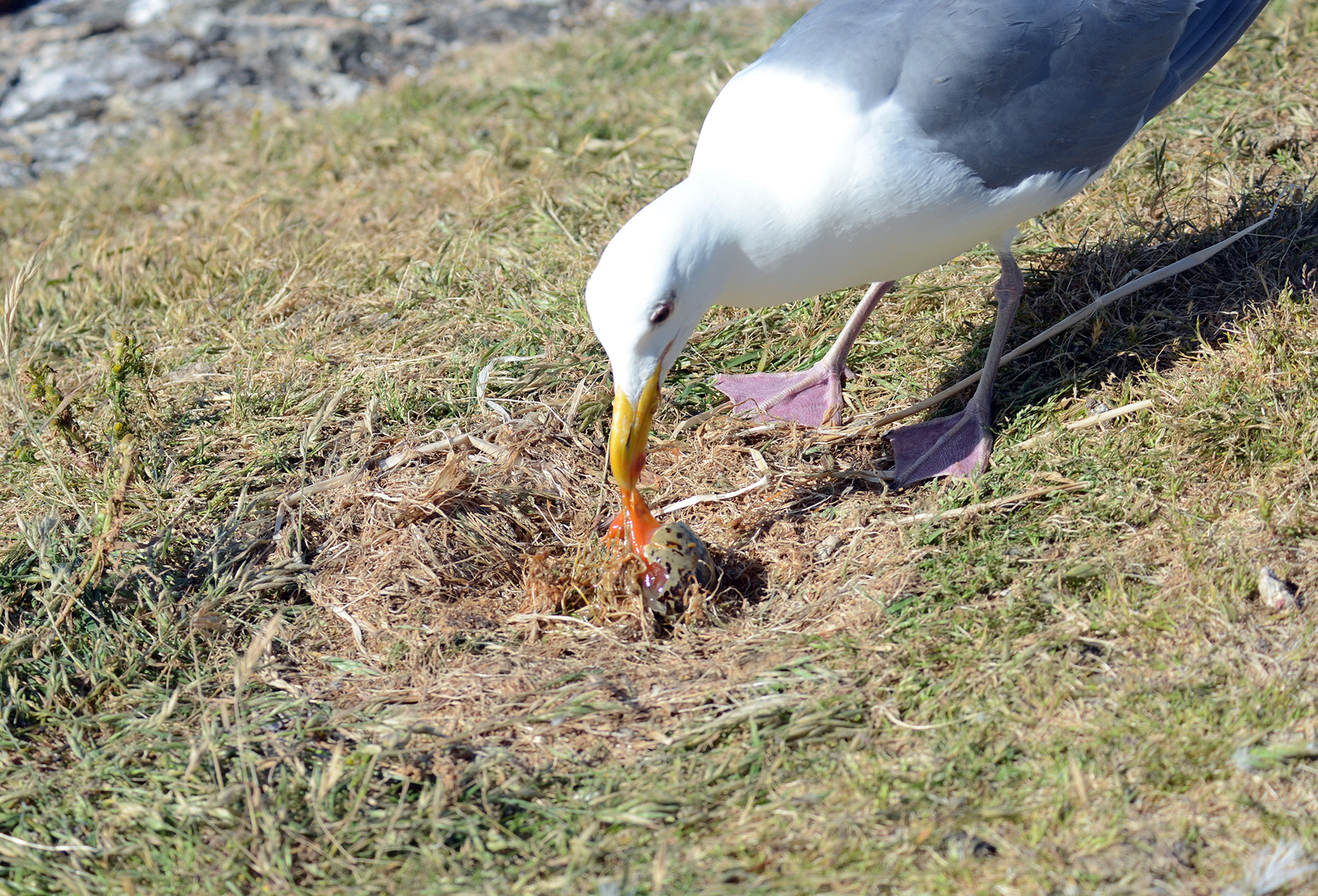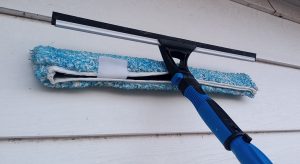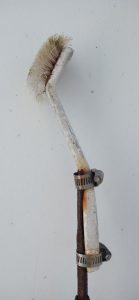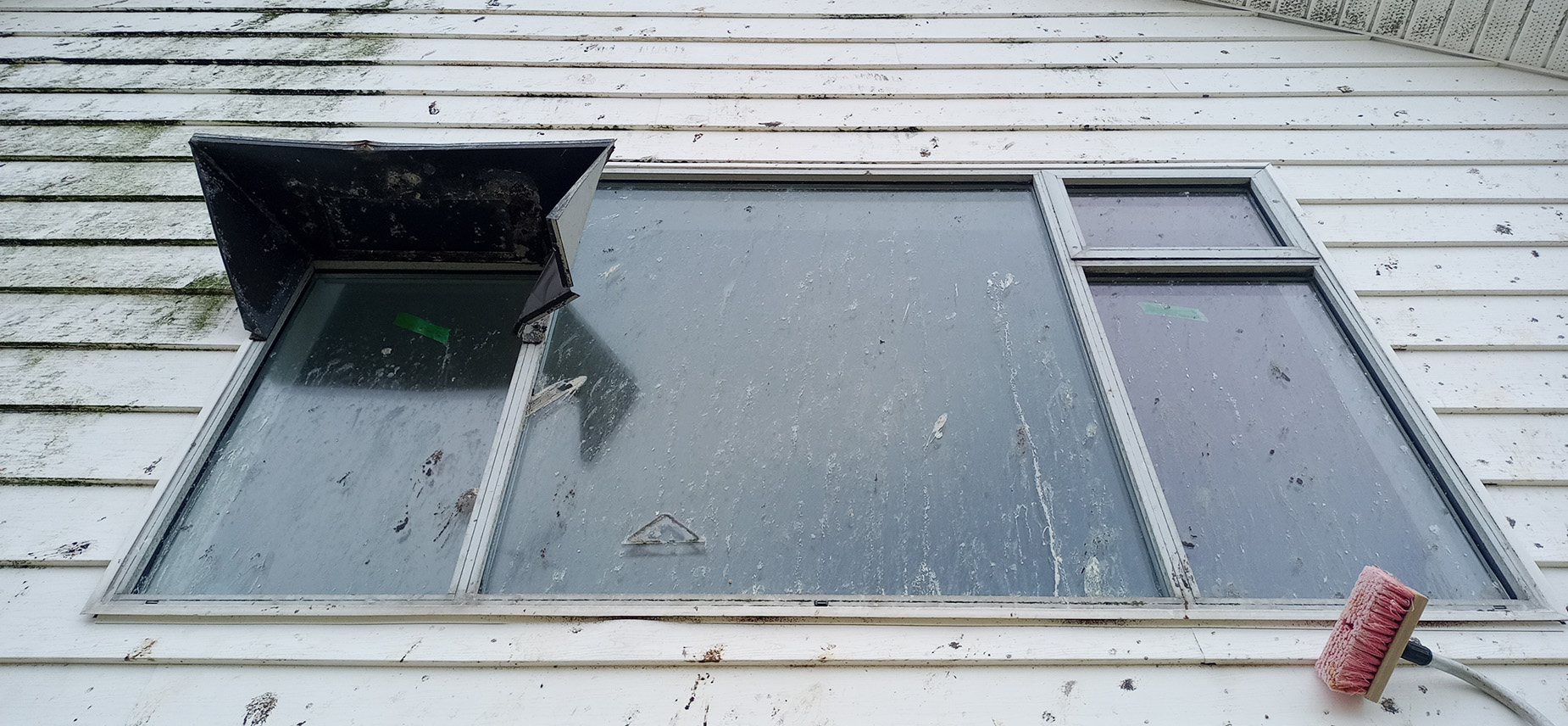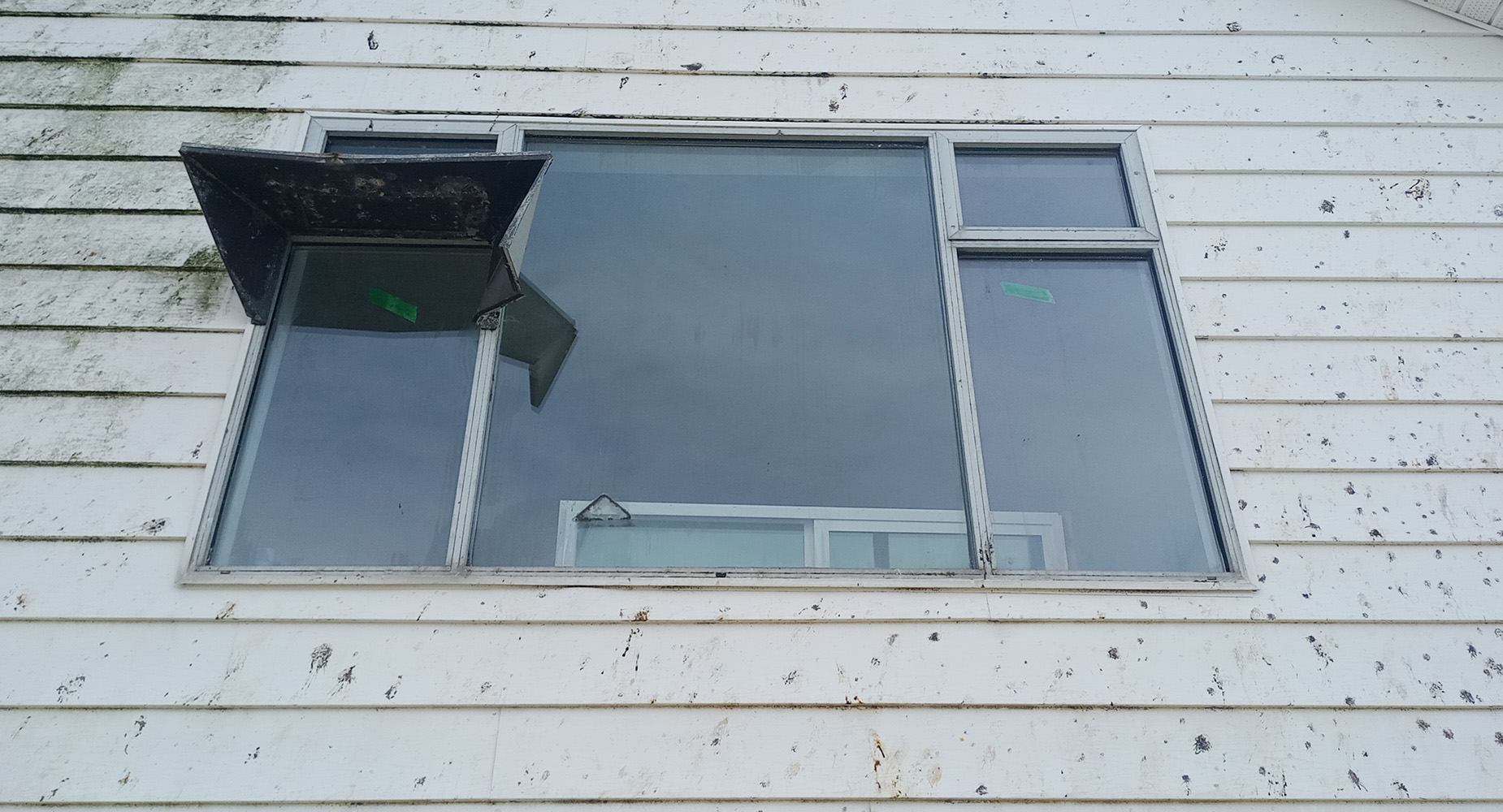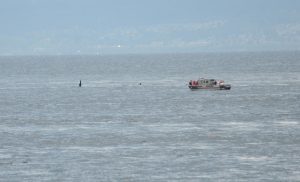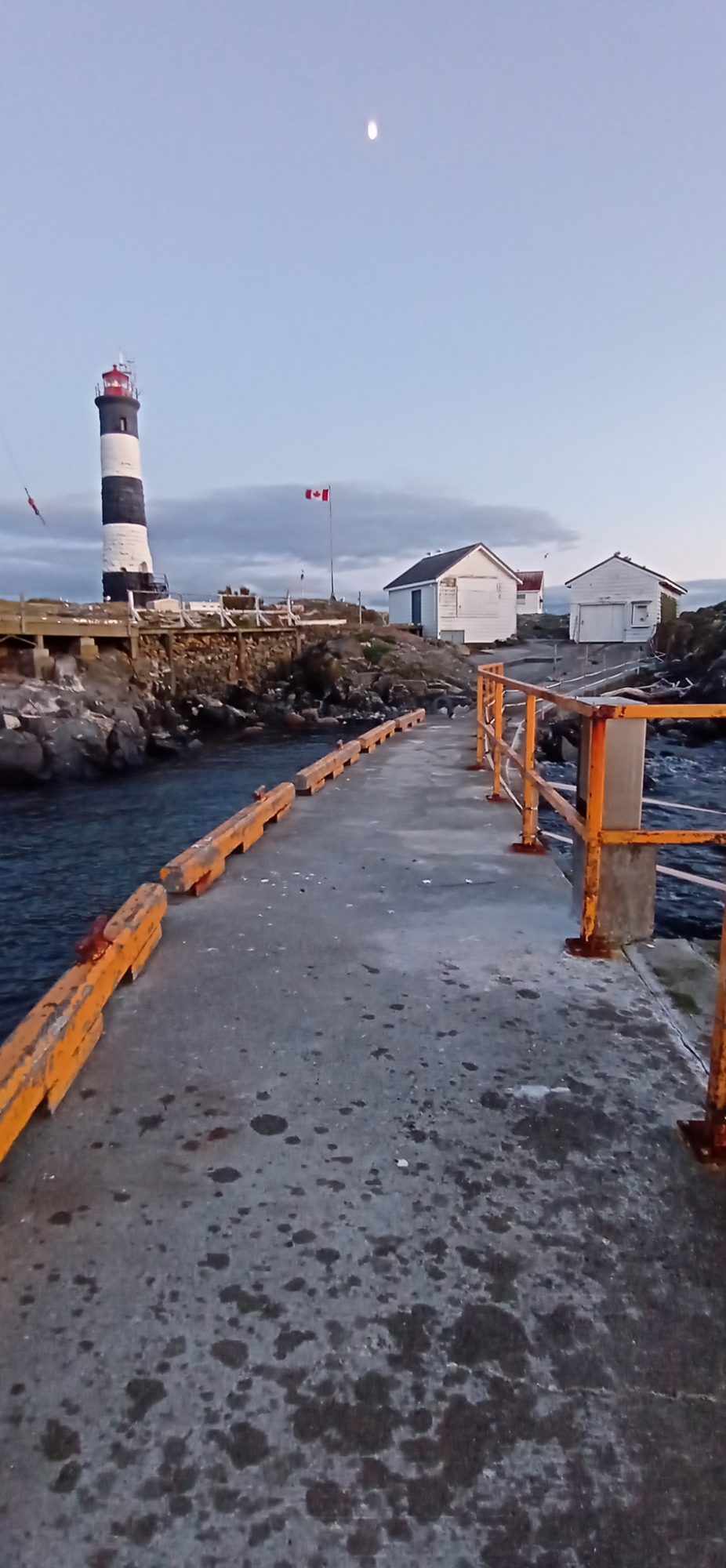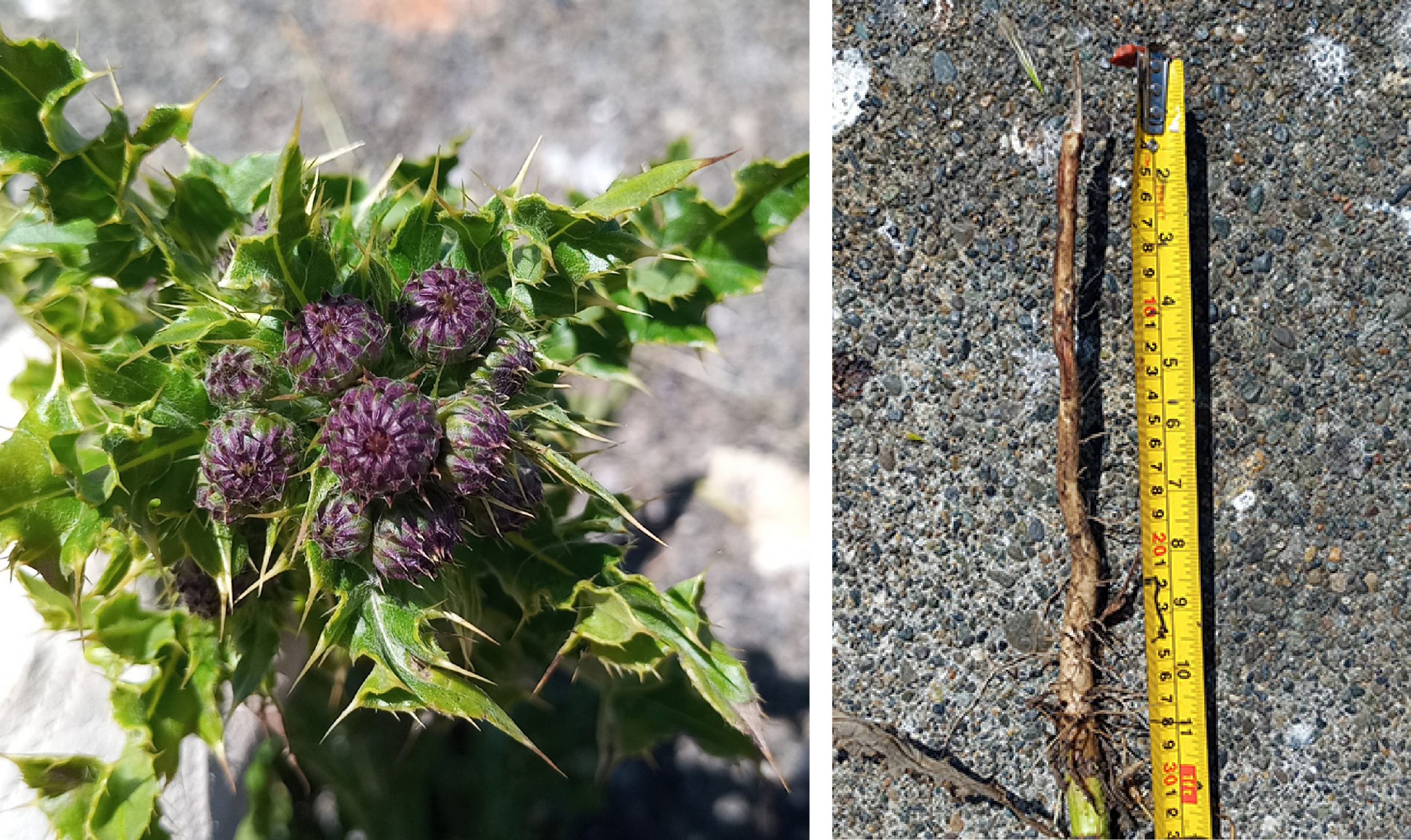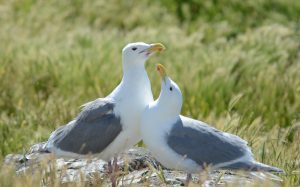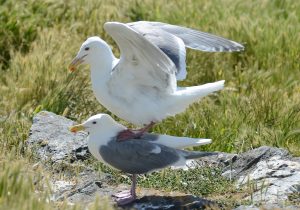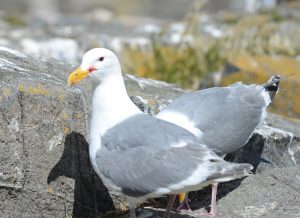Rocky Point Bird Observatory & Pearson College Race rocks Gull Survey June 2024
Survey conducted by Andrew Jacobs and Ann Nightingale
Thank you to Greg for getting us out there again on the boat and Christine with the assistance during the survey.
This survey was conducted to investigate the phenotypes of the glaucescens-occidentalis hybrid complex using the Great Race Rock as a nesting area. We looked for pairing preference of phenotypes, nest habitat preference and mapped the nests that had parents on them. We looked at the breakdown of the colony diversity into five phenotypic groups – pure type Glaucous-winged Gulls, Glaucous-winged trending hybrids or light morph Olympic Gulls, intermediate trending hybrids or intermediate morph Olympic Gulls, Western trending hybrids or dark morph Olympic Gulls, and pure type Western Gulls. The nesting of Western Gull on the island is of specific interest as there are adult Western Gulls near the island year round and we would like to see if Western Gull pairs are starting to breed in Canada or if they are forming mixed pairs.
The survey also counted other species of gull and age classes as well as other species using the rocks this time of year. The general nesting grounds on the main rock were used by the hybrid complex, Pigeon Guillemot, and Black Oystercatcher although no nests of the latter two were seen they were displaying as if nests were nearby.
Ebird link with photos and sound recordings.
The numbers of pure type Glaucous-winged Gull were up for the breeding season over our previous survey by about 6-7 times at 69 individuals with 64 adults and 5 immatures. The number of hybrid and intergrade type Olympic Gulls was 321 with 314 adults and 7 immatures. The breakdown of colour morphotypes in the Olympic Gulls was light morph (Glaucous-winged trending hybrids) 138 individuals with 133 adults and 5 immatures, intermediate morph (Intermediate trending hybrids) 166 individuals with 164 adults and 2 immatures, dark morph (Western trending hybrids) 17 individuals with 17 adults.
The island at this time contained 4 adult Western Gulls, two of which were on nests, one was in the grassy area on a rocky outcropping and one was on the outer rocky part of the island along the cliff. The two nesting Western Gulls did not have a partner present while we were on the island. Surprisingly one of the Western Gull nests appeared to have a rock placed in with its three eggs in the nest of roughly egg size.
Total glaucescens-occidentalis hybrid complex birds 394
Glaucous-winged Gull 69 (17.51%)
Olympic Gull 321 (81.47%)
-Light morph 138 (35.02%)
-Intermediate morph 166 (42.13%)
-Dark morph 17 (4.13%)
Western Gull 4 (1.01%)
Visible pairings 44
Glaucous-winged + Glaucous-winged 2 (4.54%)
Glaucous-winged + Light Olympic 6 (13.63%)
Glaucous-winged + Intermediate Olympic 3 (6.81%)
Light Olympic + Light Olympic 14 (31.81%)
Light Olympic + Intermediate Olympic 5 (11.36%)
Light Olympic + Dark Olympic 1 (2.27%)
Intermediate Olympic + Intermediate Olympic 11 (25.00%)
Intermediate Olympic + Dark Olympic 2 (4.54%)
Banded individuals included three Olympic Gulls one colour banded adult (cobalt blue over metal right leg and red over cobalt blue left leg), and one adult and one immature with metal bands.
Other Gull species in the survey area included California Gull with 3 immature individuals and Heermann’s Gull with 4 adults.
The other non larid species present
1 Canada Goose
3 Harlequin Duck
11 Black Oystercatcher
2 Killdeer
8 Rhinoceros Auklet
254 Pigeon Guillemot
3 Brandt’s Cormorant
23 Pelagic Cormorant
1 Bald Eagle
2 Barn Swallow
Pinniped abundance and usage of the area
2 Northern Elephant Seal – two immatures one small and one medium sized.
59 Harbour Seals
2 California Sealions
Map of nest locations.
Next time we will also log unidentified nests.
Any other questions or feedback is welcome.
Thank you,
Andrew Jacobs
